




















Community Calendar -40
Conundrum -38
Dear Gabby -24
From Our Readers -15

Giggles & Grins -32
Glorious Grandkids -27
Let’s Celebrate -8
Medical Matters -25
Milestones -21
Mustard Seed Moments - 42
Pet Pals -29
Postcard EXTRA -26
Publisher’s Post -6
Puzzle Solutions -23
Sudoku Marketplace -39
The Garden Post -33
Vet Connect -28
What Are You Reading -23
What’s Cookin’ -30
Your trusted electric provider for over 80 years now o ers you high-speed fiber internet.
We’ve spent the last two years building a strong and reliable fiber backbone. Now, every MidSouth member has the opportunity to sign up for fiber internet.
• no contracts
• no data caps
MidSouth Fiber is bold and fast. With unlimited upload and download speeds up to 1 gig, MidSouth subscribers also enjoy: Jump on the broadband wagon and join our growing fiber community at midsouthfiber.com

At Houston Methodist Breast Care Center at The Woodlands, our specialists review your mammogram history and track results over time — detecting changes earlier. That’s why getting your mammogram starting at age 40 — or earlier, if you have a family history — is so important.

Our Breast Care Center offers:
• The latest 3D mammogram technology
• Board-certified breast imaging radiologists
• Acceptance of most major insurance plans
Your health and safety are our priority. We are taking every necessary precaution to keep you safe.
We do not require a doctor’s order for your annual screening mammogram.


In every family, I am guessing there is at least one person who is your family “historian” (the one who keeps the genealogical records and knows whether you are third cousins or first cousins twice removed). That has never made sense to me, so I choose not to remove anyone and just count backwards by generations. No…actually, thanks to my Aunt Nancy, I have a chart.
On the Stevens side of our family, Nancy Page (my dad’s sister) is our family genealogist. We have learned over the years to be careful what we ask her regarding family relationships, because she knows a lot more than we could have imagined when we asked! Every once in a while, she just amazes me with something I would probably have never known were it not for her investigative work.
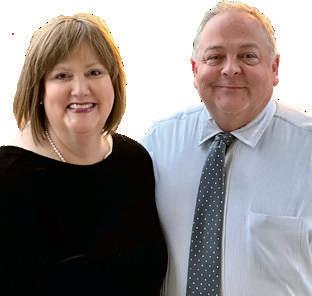
Case in point: Recently, she shared the finding of my 10th great-grandmother, Mercy (Hurd) Brigham Rice Hunt. Mercy was our first grandmother to arrive in America at the Massachusetts Bay Colony during the Puritan Great Migration. She was a Quaker, born around 1615 in England, who is said to have come with her sister due to religious differences from which they “suffered annoyance and persecution at home.” She emigrated from England to Massachusetts aboard the Susan and Ellen in 1635.
Apparently, Mercy was a strong-willed woman made of sturdy stock. She and her sister traveled to America without a male relative. She reportedly ran men off her land when they attempted to repossess pigs that were not fenced in. She was recorded as owning land in 1680, much earlier than was common for women. After the death of her second husband, she sued one Robert Wilson for debts owed to the estate of her husband. I have to believe that was almost unheard of at the time.
While most women of the time lived to 39-40 years of age, Mercy outlived three husbands and died in 1693 at the ripe old age of 78. During her third widowhood (which was the last 26 years of her life), she saw two bloody Indian wars.
As we celebrate this Independence Day, it is awe-inspiring to me that my grandmother Mercy had come to America 141 years prior to the beginning of our country! The things she and our ancestors lived through and endured are more than any of us today could imagine.
Mercy appears to have been quite capable of handling herself. In fact, in today’s lingo, she might have been called a “Karen.” Or Sassy. Apparently it runs in the family. Who says genetics aren’t amazing?
As the fireworks are lighting up the sky this year, I will be thinking of those who fought for our independence. And I’ll be thinking of (and thankful for) those who came before, like my grandmother Mercy.
God bless America, ~ Karen













Conroe centenarian and WWII veteran shares about his life experience.
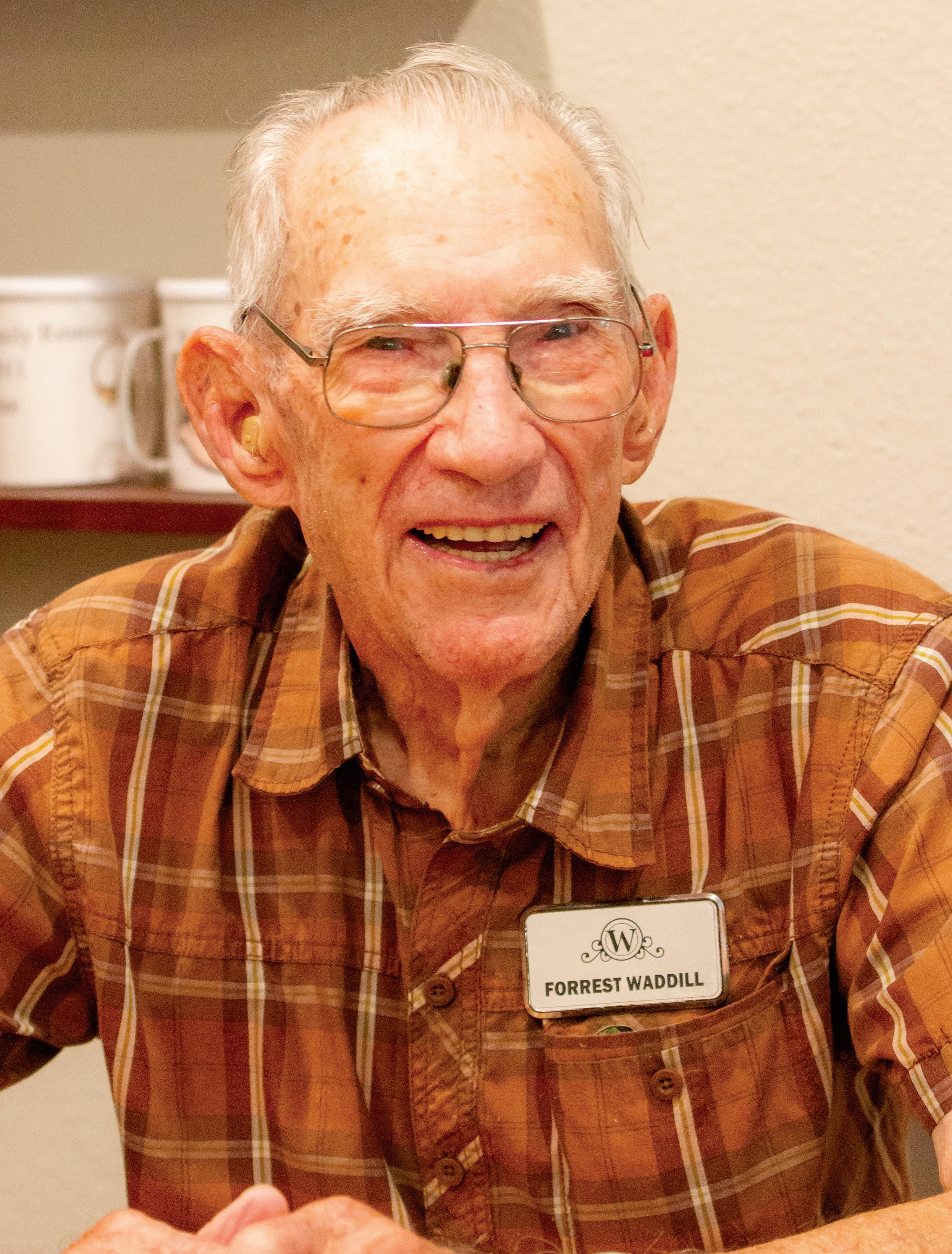 Story by Darlene Dufour
Photos by Tom Miller
Do You
Story by Darlene Dufour
Photos by Tom Miller
Do You
Born December 18, 1921 in Edgewood, Texas, Forrest was the sixth of ten children born to Albert and Lillian Waddill. The family lived on a 160-acre farm near Star, Texas-which had three grocery stores, two garages, a filling station, the post office, and a blacksmith shop. “A hundred years ago, the blacksmith fixed anything that was broken, because there was no welding back then,” said Forrest. “The blacksmith would heat the iron and beat it back together.”
“I was nine years old when the Depression hit,” recalled Forrest. My family survived the Depression because we raised our own
Forrest Waddill goes to a bookcase and returns with something in his hand. He hands me an object. “Do you know what that is?”
“It’s rust colored, round, and heavy. It looks like a petrified rose,” I answer.
Forrest grins. “It’s a fossilized buffalo patty.”
He takes it back and hands me a second fossil. “What’s that?”
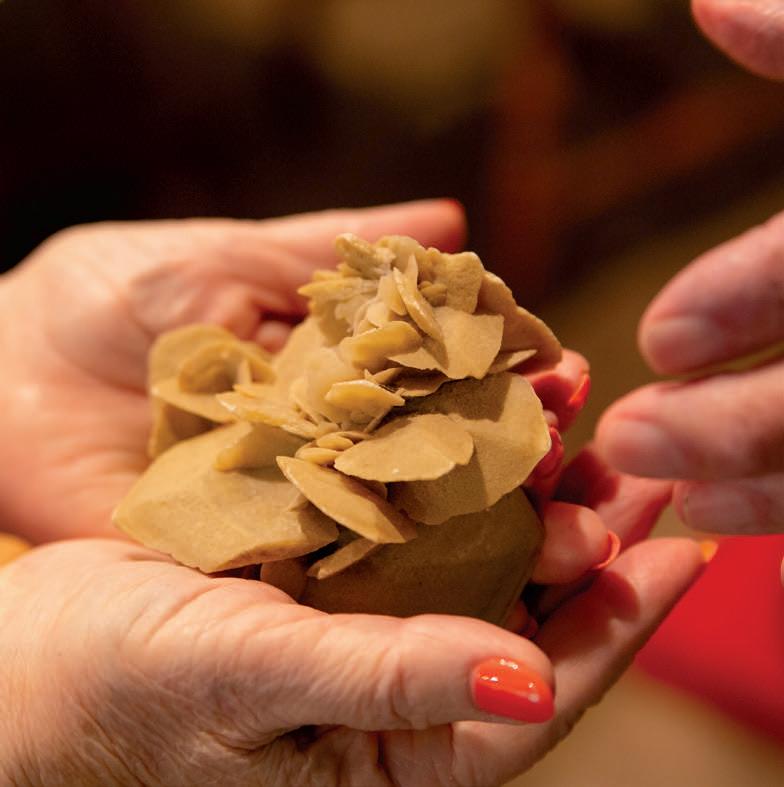
“I think it looks like leaves on a jade plant.”
He grins again. “Nope. That’s ant droppings.”
He may be 101 years old, but Forrest Waddill is certainly no fossil! He keeps his mind and body active. His daily routine is to get up about 6:00 AM. After breakfast he goes outside for a half mile walk, depending on the weather. Then he visits with other residents at Watermere at Woodland Lakes in Conroe and works on jigsaw puzzles until lunch. He takes a nap after lunch. He often bakes a pan of brownies to share when he goes back downstairs to work on his puzzle or take part in group activities like a trivia contest in the afternoon.
food, animals and a vegetable garden. All of us children worked on the farm. We bought a pressure cooker to can the food. We made ketchup, chili, jelly, and everything we could. We never missed a meal; we never went hungry. Everybody had their own place at the table. There were my parents and us kids: Clifford, Leonard, Leona, Grace, John, Forrest, Wesley, Bob, Henry, Dorothy.”
Even though food was plentiful, the family was affected by the Depression, because Forrest’s father Albert had bought 250 acres of land about a mile from their house. “He had paid all but $500 on it, and when he couldn’t pay it, the bank took the property. But he never mortgaged our home or livestock.”

Forrest left school after he completed the eighth grade to help on the family farm. “At 16, I could pick 400 pounds of cotton a day,” said Forrest. “Cotton sold for $45 or $50 a
bale back then.” In the 1930s, students were required to complete the eleventh grade to receive a high school diploma.
He eventually got a job working on government projects. “I helped build the airports in Gainesville, Ft. Worth, Arlington, Mineral Wells, and Wichita Falls.”
Forrest had a deferment because of his job.


“They told me they could keep me out of the war, but everyone else was going, and I thought it was my time to go,” stated Forrest. “I enlisted on August 20, 1943. I was 22 years old.
“I joined the U.S. Navy Seabees and served in the 134th and 135th Construction Battalions in the Pacific islands of Tinian and Okinawa. I helped build two-mile-long airstrips for B-29 bombers to take off
“I never expected to live to be a hundred and one years old,”
Forrest Waddill said.
and land. On Okinawa, I helped build roads and living quarters.
“I had the best job in the service. I was a field mechanic. That gave me a jeep and a pass that let me through roadblocks anytime I wanted. I saw a lot of Okinawa. It was a muddy place because it rained a lot. The road was washed out in one place, and the trucks got stuck in the black mud at the roadblock. They’d wait until five vehicles were stuck, then bring out the bulldozer to push them over the hill.”
Forrest was honorably discharged on March 4, 1946. “I left Okinawa with a lot of money. I wish now that I had saved it or at least spent it more wisely. Men were getting discharged and getting married. I wasn’t about to get married right away.”
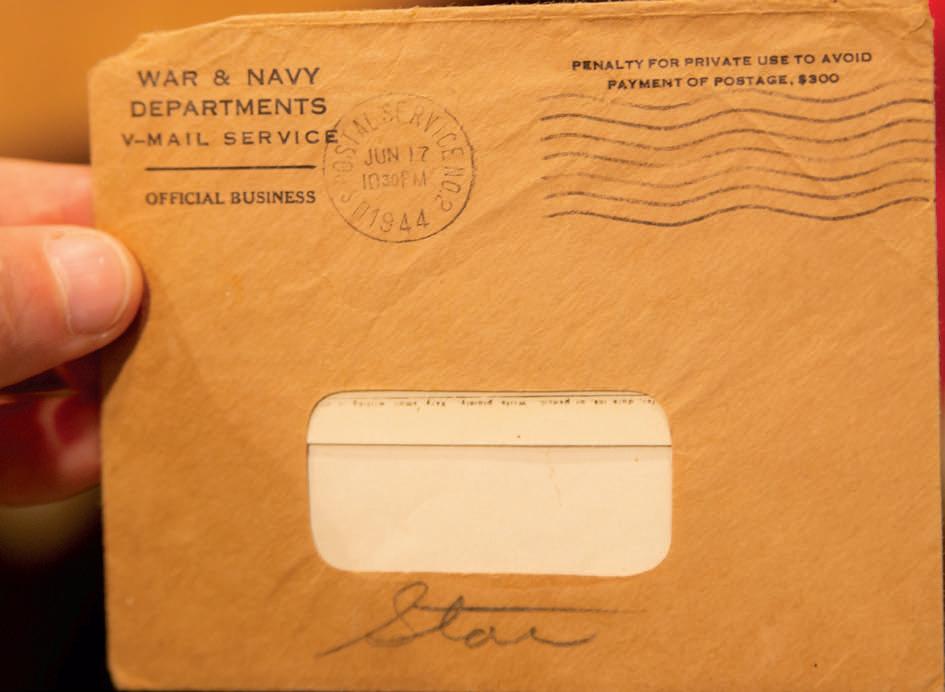
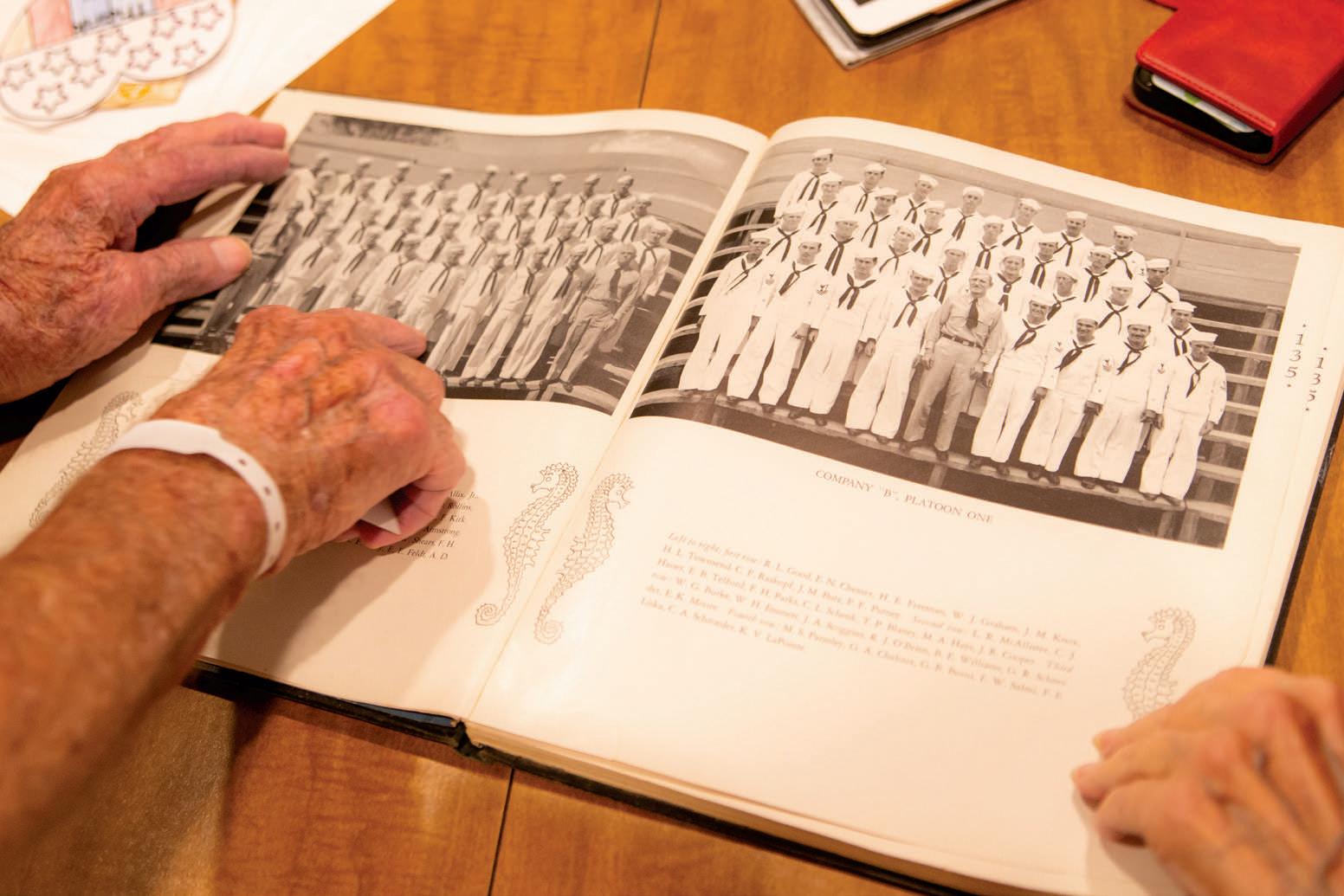

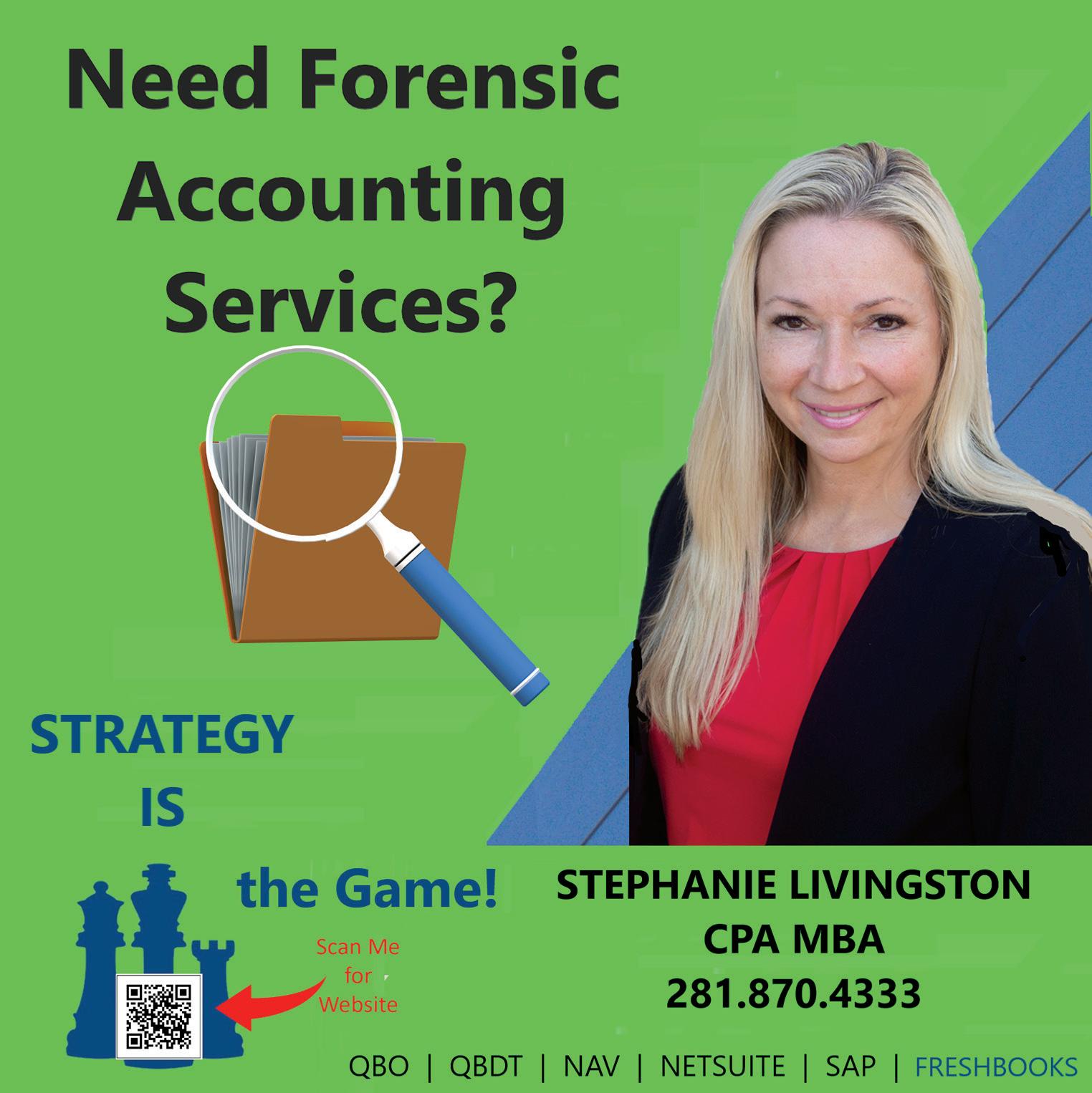
Forrest moved to Midland in 1951 where he lived for sixty years. He and his brothers started the Waddill Brothers Painting Company and painted houses for over fifty years.


Forrest married Ann Manuel from Goldthwaite when he was 29 years old. They had two daughters, Sharon and Alicia. The marriage ended in divorce after 27 years.
Four years later, he married Christine Riggs who had three children: Dale Riggs, Anita Starrit, and Connie Flewellyn. The blended family had 5 children, 17 grandchildren, 38 great-grandchildren, and 9 great-greatgrandchildren.

Forrest indulged his sense of adventure after he retired. He bought a trailer, and he and Christine visited 43 states, Canada, and Mexico. They visited many national parks and more than 80 state parks in Texas over twenty years. Christine died in 2014.

Forrest and his daughter Sharon Sanchez now share an apartment at Watermere. Sharon retired from Anadarko Petroleum, where she was an engineering technician.
“I’ve seen a lot of changes during my lifetime. I’ve seen us go from a horse and buggy to sending men to the moon in spaceships.
My daddy bought a Model T Ford in 1925. They delivered it on a Sunday morning. We were already loaded up in the buggy to go to church. Daddy told them to just leave it there in front of the house, and we went on to church in the buggy. I asked Daddy years later why we didn’t just get in the car and go to church. He said, ‘Because I didn’t know how to drive the car.’”


While he appreciates many technological advances, Forrest is disappointed in what causes mistrust of one another. He grew up in a time when “My word is my bond.”
“The thing that bothers me most is this. When I was growing up, what you said is what you did. It’s not that way anymore. There are still good people, but a lot of people don’t keep their word. You’re supposed to do what you say you will do.”

Forrest keeps up with world events and knows that another world war will be fought much differently than the first two. “ Another war will wipe out civilization.”
Like most people, Forrest is concerned by the mass shootings at schools, malls, and clubs. “There are too many guns. Let everybody have whatever gun they want, but if it shoots more than one bullet at a time, the barrel should be full of lead.”
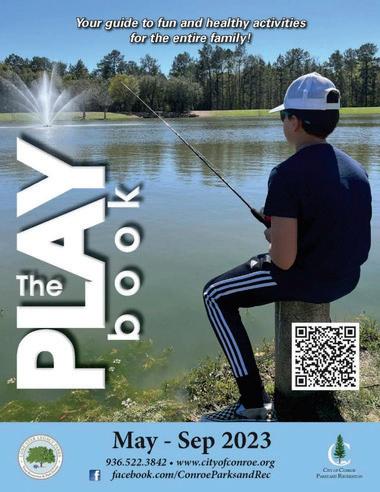
“Tell them what you did with your gun after the war,” Sharon says.
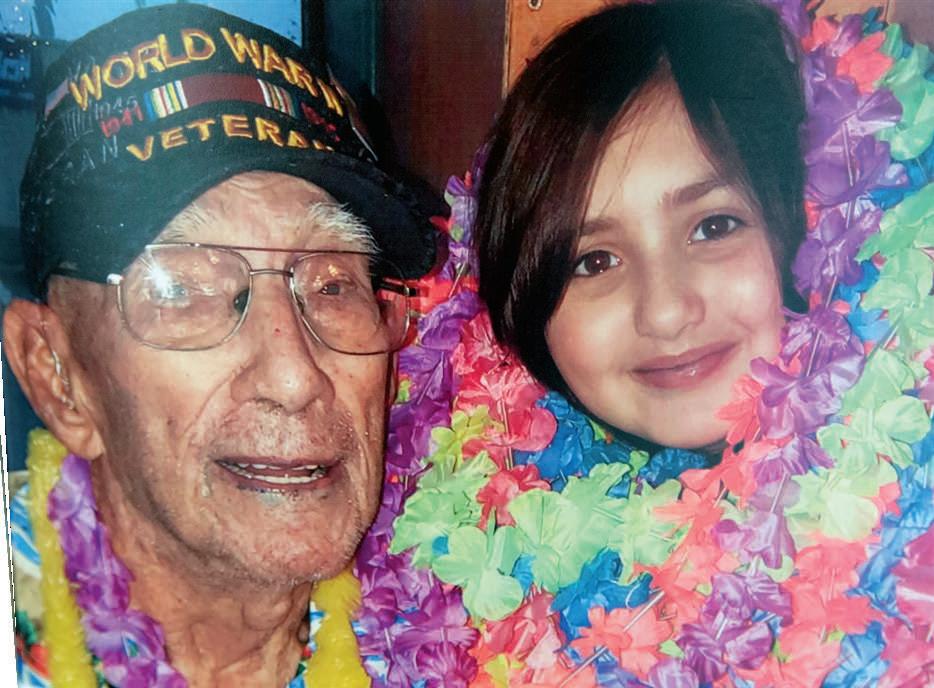
“All military weapons were to be turned back in; no one was to keep them, so I followed policy after WWII and turned in my gun when I was discharged. I haven’t owned a gun since.”
As for whether Americans are better off economically now than in the past, Forrest says, “Wages are higher than when I was a young man, but so is the cost of living. It balances out. The Depression left a mark on
me. I’m careful with my money. My advice to young people is to be careful and cautious with how you spend your money.”

Forrest is an active member of a veteran organization. One of the highlights in his life was being chosen for the Honor Flight to Washington D.C. in 2015. He was one of the veterans of WWII who were flown to the nation’s capital and honored there for their service. A highlight of the trip for Forrest was when he got to meet Senator Bob Dole.

Forrest has a life-long interest in collecting fossils that began when he was young. Farming unearthed many arrowheads. “I liked the way they were different from each other, and I started collecting the arrowheads. I saved them in a cigar box,” said Forrest. He contacted the geology department at Midland Jr. College and donated most of his collection to the college, because he had too
many fossils to take when he and Sharon moved into the apartment. “And rocks are heavy,” Sharon pointed out.
Forrest’s Christian faith is an important part of his life. “God has been good to me. God has charge of my life. Everything good shows there is a God,” declared Forrest. Sharon added, “He studies his Bible every day.”
Forrest said, “My favorite Bible reading is the first three chapters of the Gospel of John. My favorite scripture is Ephesians 2:8, ‘For by grace are ye saved through faith; and that not of yourselves: it is the gift of God.’”
Adrienne Cooper, Resident Lifestyle Director at Watermere said, “Forrest is a wonderful example of how to live your life. He has lived through so much and has so much wisdom. He is kind and friendly to everyone. He and his family are all wonderful people, and I’m thankful that I get to know them.”

Forrest summed it up, “I’ve enjoyed life. Every part has had its place. I have no major regrets. I wish I’d led a better life. I could have lived a better life if I’d learned to control my mind.”


I enjoy looking at the ads for local businesses. Thank you for supporting small businesses!



Lane Stapleton

I love Postcard Magazine for the simple things. You allow me to show off my precious grandsons, you allow us to get to know our neighbors better, I love new recipes and the Giggles and Grins section. This magazine is truly something that hits the mailbox that I ENJOY!!
So awesome to hear about your Eastex Edition in the Cleveland area!! Way to grow!!!



Adriane Hunter
Congratulations on your new edition!

Michelle Miller
Cleveland friends, you are gonna love this magazine. Pinky swear!

In Texas, we WORK BIG and PLAY BIG! So, a theme attraction where small children operate actual life-size construction equipment doesn’t seem too crazy, right? Enter Dig World in Katy, which opened in March 2022. The Postcards Team, accompanied by Duke Sherman (our official kid tester of the attractions), took a trip to check out Dig World so we could share firsthand about the park with readers.
For starters, we sat down with owner Jacob Robinson and asked him to share more about Dig World.
“My business partner Rick and I came up with this idea back in 2018. I have a seven-year-old son who has always been obsessed with construction equipment. My son got sick in 2017

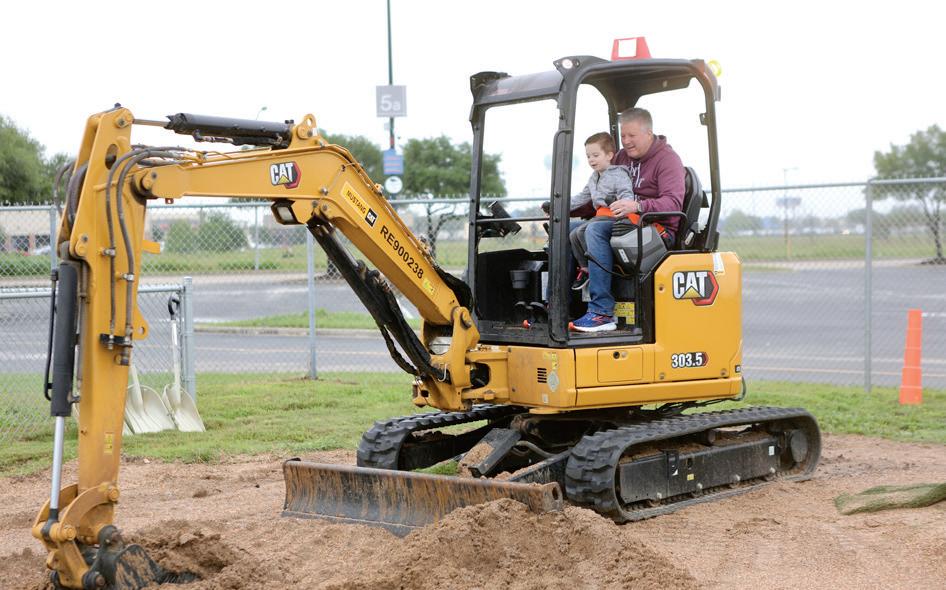

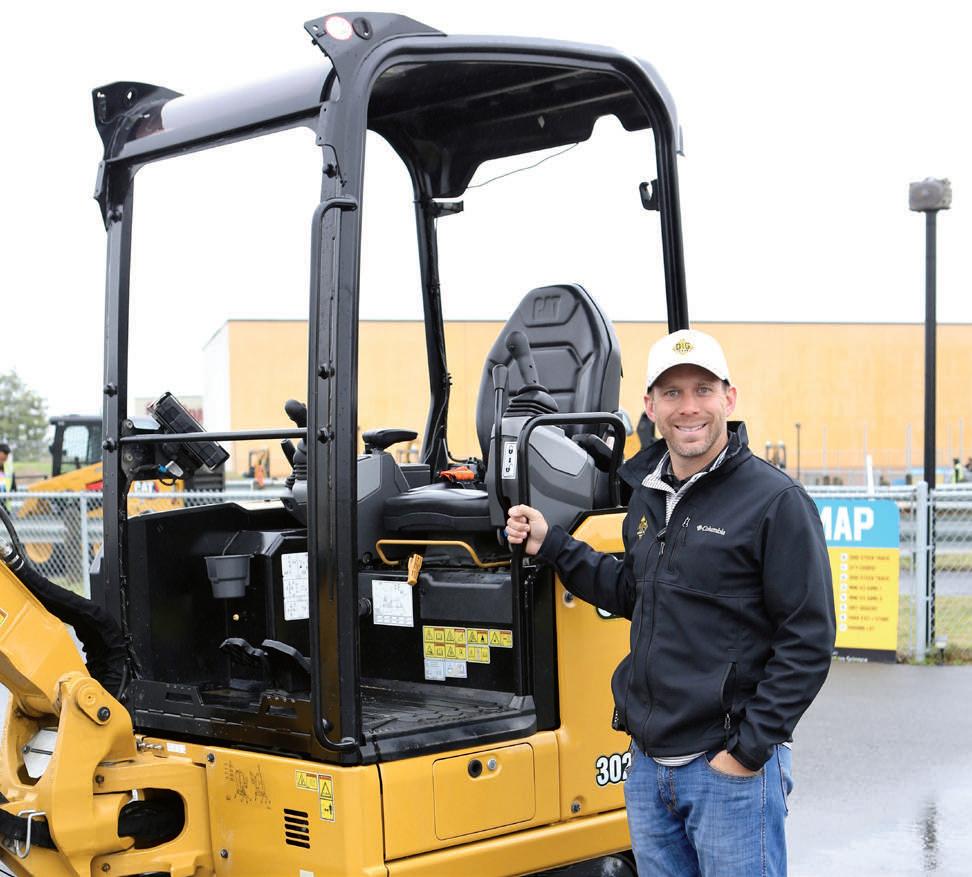
with bacterial meningitis, and it left him permanently disabled, with a whole host of special needs. Coming out of that, my desire was to create a place where he, and individuals like him, could participate, have a great experience, and bring families together.
We began a journey to see what was out there. There’s a park in New Jersey like ours. We thought we could bring one to Texas and do it well here. Initially, we planned a larger park with an all-day experience.
After Covid paused our plans, we shifted our business model into the 3.5 acre park you see today. We broke ground in 2021 and opened the doors March 2022.”
Dig World learned that a 2-hour
“We started fundraising in 2019. Then Covid hit. We joked, ‘We’re already crazy telling the world we’re going to put four-year-olds on excavators. Now we’re crazy doing that AND trying to build a theme park in the middle of Covid. So, we’re double-crazy!’”
–Jacob Robinson, Dig World ownerSmiles abound as children experience the fun.
• 2 Skid Steer Tracks - Take a drive in a full-size Caterpillar 236D3 Skid Steer Loader around a windy track!

• UTV Course - Get behind the wheel of a UTV side-by-side and venture through a safely guided track!
• Mini Excavator Dig - Get behind the controls of a Caterpillar 303.5 Mini-Excavator and dig real dirt to your heart’s desire!
• Mini Excavator Game: Pond Fishing - Test your skills as you fish objects out of mini ponds with a full-size Caterpillar 303.5 MiniExcavator!
• Mini Excavator Game: Cone Pick-up - Pick up all the cones with a full-size Caterpillar 302.7 Mini-Excavator!
• Playground
• Gem Mining Station
• Turf Field with Yard Games


experience is ideal for their target demographic, so they plan to keep the original park plan. Additional locations are being considered in the Dallas/Fort Worth, Austin, and San Antonio areas.
Rides are restricted by height. Children taller than 48” may operate all attractions by themselves. Children taller than 42” can operate most of the equipment by themselves. Children between 32” and 48” tall may ride and operate machinery with an adult. Children shorter than 32” may utilize all other attractions in the park except for the machinery. All children under 32” tall are FREE! For everyone else, a 2-hour pass is $24.99.
Tickets are good for two hours, and customers can do each attraction multiple times (provided they proceed through the line each time). Each person entering the park must purchase a ticket. The reasons for this are many, according to Jacob, but the primary reasons are: 1) an accompanying adult may need to help the child; and 2) most adults end up wanting to operate the equipment, too!
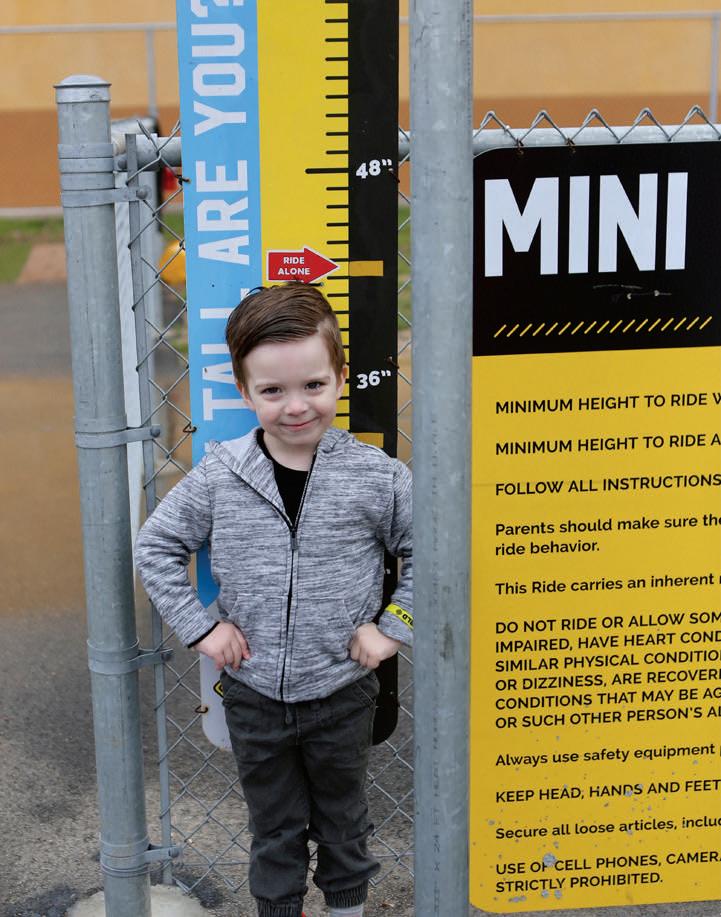
It’s hard for some people to believe the

SCAN
children are actually operating the machines at Dig World. Said Jacob, “I had a parent here last week who was a heavy equipment operator for Fort Bend County. He asked us if we were controlling the equipment with drones. I had a difficult time convincing him the kids were actually running the equipment.”



The staff we encountered on our visit were mostly young, but definitely enthusiastic and competent. Says Jacob of his staff, “We are blessed with some great high school kids. Our kids have bought into what we are trying to deliver--bought into the customer experience and providing a lasting positive experience.” This isn’t by accident, but by design. “It stems from Amanda, our general manager, providing
great leadership,” said Jacob, “but also from attitude. Rick and I joke that we want to have ‘Chick-fil-A customer service’ and be ‘Bucee’s clean.’ That’s the standard we are trying to build.”
Each quarter, a Special Needs Night is a great service opportunity for the organization. According to Jacob, “We have 100% of employees raise their hand and say, ‘I want to work that night.’ That makes my heart
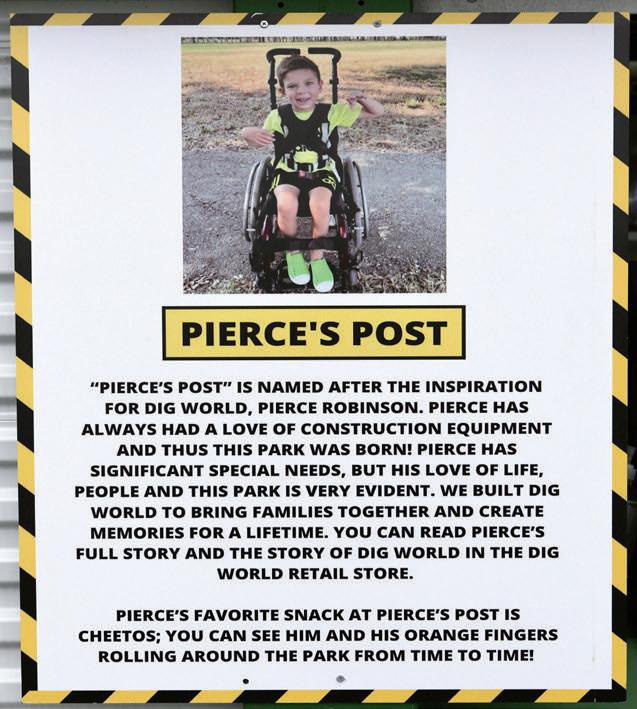
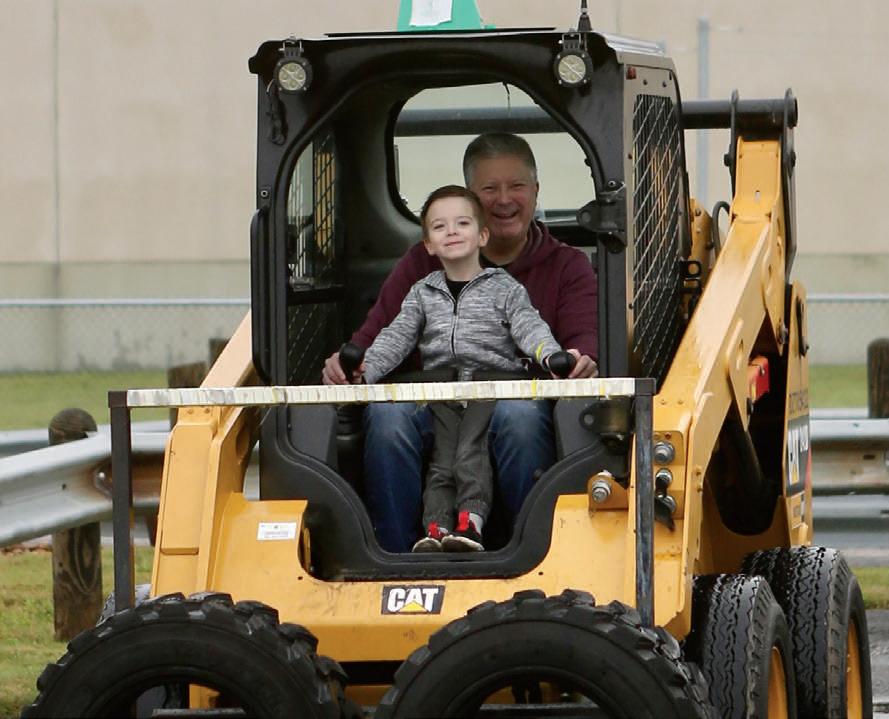
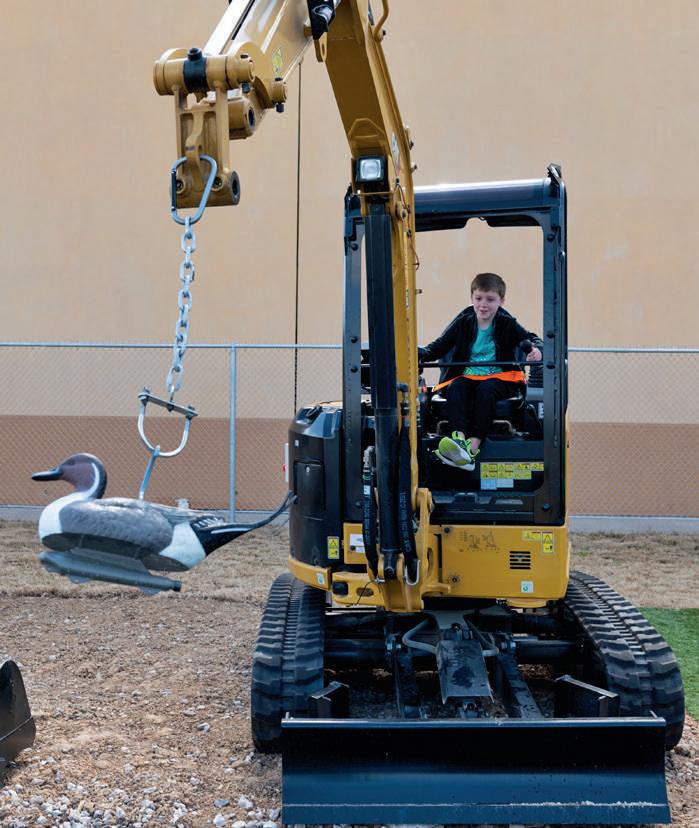
happy. They’re a great group of employees.” Knowing firsthand that having a special needs child can result in financial and environmental restrictions for families, Jacob has made it a priority to work with community partners and sponsors to underwrite tickets to Special Needs Night so families in which a person has a disability can come for free to Dig World.
Dig World is also a great place for parties. The park had 400 birthday parties during its first year. “We are hosting eight parties today,” said Jacob, “and then we have a military families group of about 100 people coming in later. It’s a busy day.” Jacob also said that Chelsea, their event director, is always looking to improve that process and experience for customers.
A source of pride for Dig World is a partnership with the Texas A&M University Engineering Department. University students designed and created informational “fun fact” signs on display at Dig World, and students also developed a curriculum for school field trips, an aspect of the park Jacob hopes to really grow.



When asked what the most important thing he has learned from building and operating Dig World, Jacob reflected, “This park--we get the opportunity to interact with people from all around the world. We get to employ high school students--so I can pour into high school kids, and I can deal with grandparents. There are not many jobs where you get to do that on a consistent minute-by-minute basis. In my own way, I get to love on people and show them people care about them. It’s fun.”
5000 Katy Mills Blvd Suite 455
Katy, TX 77494
digworldtx.com
Editor’s Note:
Readers may rest easy knowing Dig World was Duke Sherman tested…Duke Sherman approved!
Open weekends only during the school year (except for holidays).
Open Thursday through Sunday during the summer.

Congratulations!
Randy & Peggy Reynolds recently celebrated their 36th anniversary!
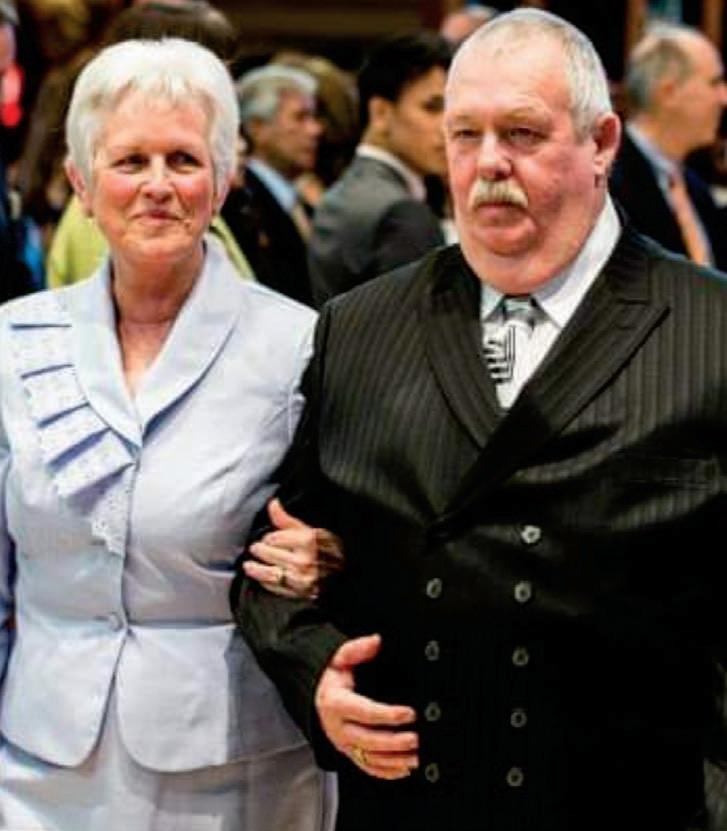
We’re
Happy 5th Anniversary!
Lindsay & James “Bubba”Holland
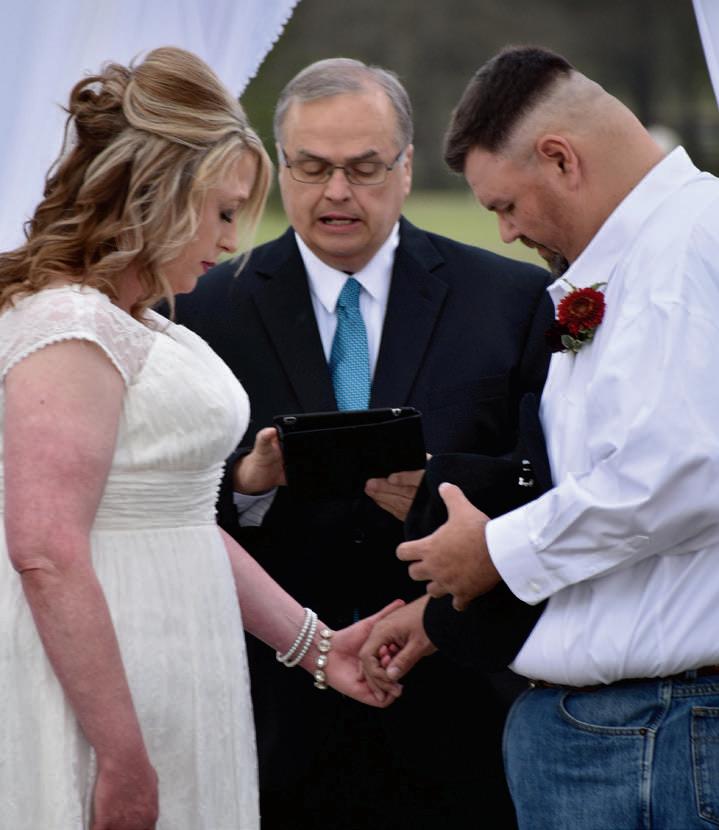
Daughter of Don & Pam Barnes
Granddaughter of
Rev. Joe & Jean Barnes and Eugene & Shirley McCaffety
 Law
Law
What is an in terrorem clause, and why is it called that? An in terrorem clause (in tehr-roar-em) comes from Latin for “in fear.” It is a provision in a will which threatens to cut off from inheriting the full gift provided in the will if anyone challenges the legality of the will or any part of it. Many people rely on the fact that, if they have an in terrorem clause in their will, it cannot be successfully attacked because the offending party would be too afraid to do so.
This is true if all the other factors that are needed to make it enforceable are present. The primary factor is that the language in the in terrorem clause must be very specific.
A 2003 case out of Dallas stated that the challenger’s action failed because the in terrorem clause was very specific in its demands. In that case, the testator specifically stated that if an attempt was made to put his wife in a nursing home, he wanted the beneficiary to get nothing from his estate. That in terrorem clause expressly stated, “In the event that any of the beneficiaries or devisees to my Will should attempt to place my wife in a nursing facility and defeat my plan to continue home care for my wife before all of the Trust has been used for her care, his or her share of my estate and trust remainder shall be
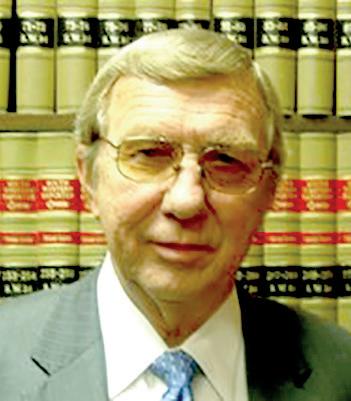
forfeited and descend to the other of my beneficiaries.” 106 S.W.3rd 860 (Tex App.- Dallas 2003, pet. denied) @ 863.
The filing of a lawsuit to challenge a will shall not in and of itself automatically trigger the enforcement of an in terrorem clause. Some examples of these non-triggering actions are as follows:
• Filing of a lawsuit for a declaration from the court determining the intent of the testator.

• Filing another will that is in conflict with the will being offered. Perhaps it is a later date than the will being offered, or perhaps it was dated before the testator was diagnosed with dementia, if applicable. If the testator was diagnosed with dementia before the will was drafted, then a fact question for the Court would be, was the testator competent to make a will at the time it was signed.
• Lawsuits challenging the qualification of the executor or trustee.




Another common defect in some in terrorem clauses is that the testator intentionally bequeathed the challenger with a very small gift, and the aggrieved party believes he/she has nothing to lose by the challenge.
For example, if Uncle Midas only left $10 to Billy Bob, and Billy Bob
decides to file suit to overturn Uncle Midas’ wishes, he does not have much at risk, and he is much more likely to file suit. If, on the other hand, Uncle Midas left $200,000 of his millions to Billy Bob, he would be faced with losing $200,000 if he loses the contest. The ultimate decision to contest the will then becomes a much more frightening prospect, and the in terrorem clause had the desired effect.
In my own practice, I occasionally run across wills that have been prepared by unqualified people, and they often put an in terrorem clause into a will that has no chance of being upheld.
We are fortunate living in Harris and Montgomery counties that have a plethora of attorneys who know how to handle an in terrorem request. You will be well served by finding an attorney of your choosing to draft your last will and testament.





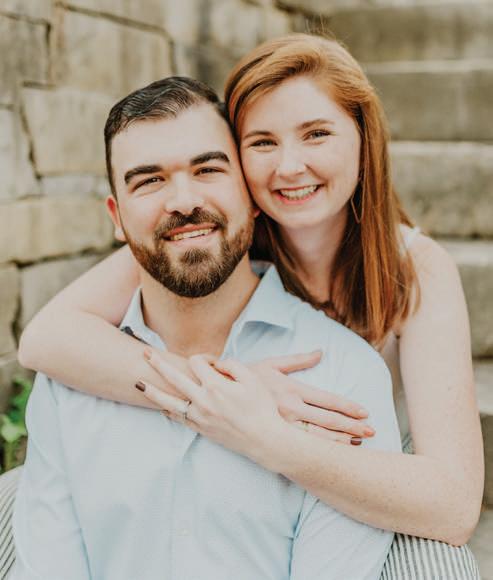


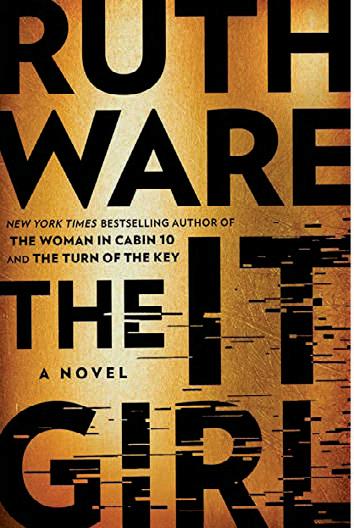
Welcome back to the Dear Gabby advice column. Happy Independence Day! God Bless America; America Bless God. Ronald Reagan once said: All great change in America begins at the dinner table.” Tag; you’re it! It’s summer vacation time. Several years ago, I hung a map in my house to put pins in all of the locations I have visited. I had to go to Cape Flattery, Washington and Madawaska, Maine first, so the map wouldn’t fall down. This year, I checked my summer vacation budget. I’ll be going to a movie. Send your questions to me by clicking on Dear Gabby at www.PostcardsLive. com/share.
DEAR
My husband loves gadgets. Consequently, he has one of everything, and it’s very hard to buy him gifts. Do you have any suggestions?
Not knowing anything about your husband, I’m sorry, but I don’t. But, my husband is the same way. I do have a suggestion of something to avoid buying for him. My husband Dud really likes to keep the household knives very sharp. He thinks they are actually less likely to cut you badly since you’re not required to put much pressure on what you’re cutting. He sharpened the blades the old fashioned way, so I bought him a fancy new electric sharpener for his birthday. I used to have a nice large wooden cutting board. Now I have two small ones. It’s going back!
DEAR GABBY
My wife, her mother, and I were discussing end of life wishes. My mother-in-law said she wanted to die a natural death, so I offered to drop her off in the National Forest. Now, neither of them is speaking to me.

Make a note to yourself: Just because it pops into my head does NOT mean it should come out my mouth (especially considering the subject of the conversation). The ability to keep your mouth shut is usually a sign of intelligence. Unfortunately, you failed your IQ test. Regarding the ladies speaking to you, have you tried an apology? If that doesn’t work, you should buy a tent. Your next home may be the National Forest”
CONFIDENTIAL TO “PET PEEVE”: That is exactly mine, too. To fly Old Glory in an improper or tattered condition is not honoring what she stands for. Please replace any worn or discolored flags. Thank you, and have a safe and happy Independence Day!

 By Rebecca L. Martin, AuD, CCC-A, FAAA
By Rebecca L. Martin, AuD, CCC-A, FAAA


It’s one of your five basic senses, but how much do you really know about your hearing? Is it normal? Are you doing things that might be damaging it? Would you even be able to tell if it was getting worse?
“Seeing an audiologist is a good way to check on your ear health and establish a baseline of your hearing,” explains Dr. Rebecca Martin, an audiologist at Houston Methodist ENT Specialists at The Woodlands. “If you do have hearing loss, your audiologist can explain what it means for you moving forward and recommend ways to prevent further damage.”

• You’re not hearing well in certain environments or situations. Whether you’re turning the TV volume up or you don’t always hear well enough to keep up with conversations.
• Someone else has noticed a change in your hearing. It is common for hearing changes to first be noticed by a spouse, child, loved one or friend — not the person with hearing loss.
• You have pain, pressure or drainage in your ears. This is typically a sign of an underlying ear problem that needs to be treated.
• You’ve noticed a ringing in your ears. This early sign of hearing loss can also sound like static, buzzing, humming or cricket-like sounds.
• You have a family history of hearing loss. A family history of hearing loss is a good reason to establish a relationship with an audiologist.
You’ll be asked about your hearing and ear health history, as well as any symptoms you may be experiencing. From there, a physical evaluation of your ear health and hearing begins.
“We look inside the ears to make sure there aren’t any occlusions (blockages) due to ear wax or something else,” explains Dr. Martin. “Next, we do a pressure test, applying a little bit of pressure in the ear to make sure that your eardrums are functioning as expected.”
Then there’s the actual hearing test, in which your hearing is measured as you listen to sounds of different pitches and volumes. Word recognition and comprehension are also assessed.

“In some cases, a hearing impairment is the result of an underlying issue that can be resolved, such as an ear infection or fluid in the ears,” explains Dr. Martin. “If that’s the case, your audiologist will likely refer you to an ENT doctor for treatment.”
In situations where the hearing loss is permanent, audiologists are able to recommend the best amplification options to treat and improve quality of life.
Dr. Martin recommends seeing an audiologist if you are 65+, exposed to loud noises at work, or have a history of listening to very loud music. Even if your hearing is normal, an audiologist can help you understand how to keep it that way — recommending tips for continuing to protect your hearing and reducing your risk of hearing loss.
You weren’t born a Texan, but at least you married one!
That’s right! When we got married, I wanted to let Sharon know how much I loved her, so I said, “I guess I’m a ‘drafted-in’ Texan.” She cocked that leg around, like Texas women do, shifted her weight to

6 different Music Halls of Fame…15 Grammys… 8 CMAs…9 ACMs…13 IBMAs… and 1 upcoming performance at Huntsville’s Old Town Theatre on Sunday, August 20th!

that one leg, and said, “You’re not a ‘drafted-in’ Texan. YOU are a ‘wannabe’.” So, I knew my limitations right then.

Read our full interview with Ricky Skaggs at Postcardslive.com!
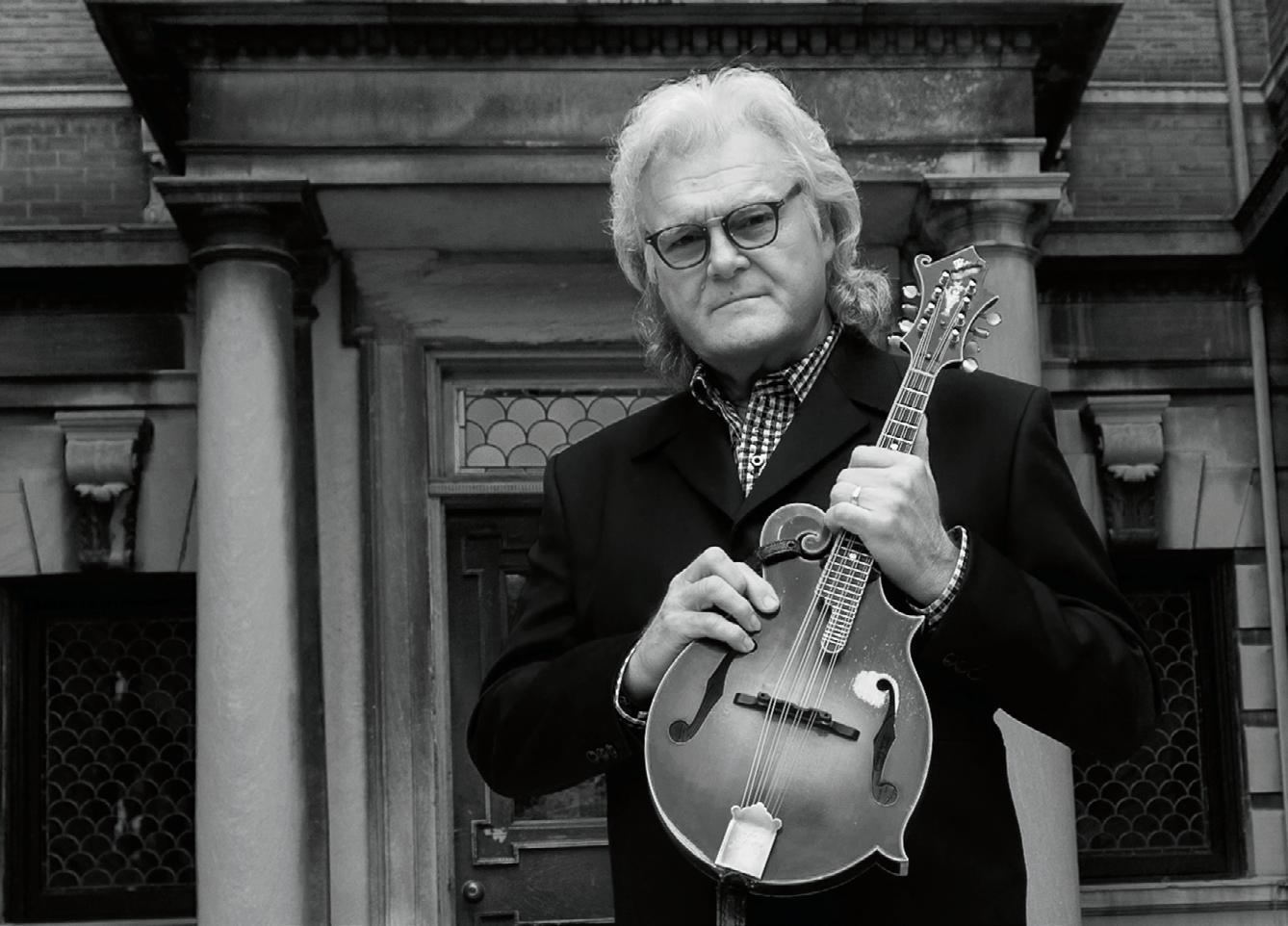


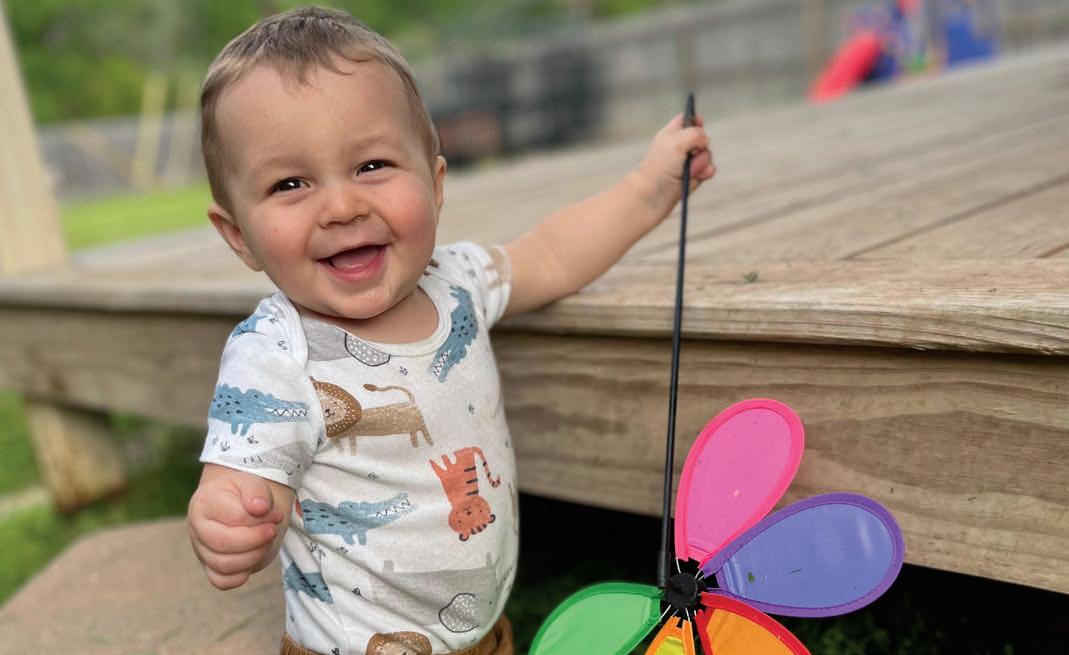

 By Kim VanWagner, D.V.M.
By Kim VanWagner, D.V.M.
Traditional Chinese Veterinary Medicine food therapy has been gaining popularity. Food therapy is an art and a science using selected food ingredients and/or superior herbs to feed individuals based on age, species and breed, geographical locations, personality, and current disharmony or disease processes. Food therapy can be used as a primary treatment or adjunct therapy for specific health conditions, to promote health, and for prevention.
Types of food energies are hot, warm, cool, cold, and neutral. Hot/warm are used to treat cold patterns and cool/cold for heat patterns. The more processed the foods (i.e. dry kibble), the more heat it creates. Canned food is less “hot” than kibble. Hot/warm includes chicken, mutton, venison, shrimp, pepper, and cinnamon. Cold/cool foods clear heat, drain fire, and cool blood. These include turkey, white fish, crab, watermelon, and bananas. Neutral foods are for maintenance and include pork, beef, potato, and Chinese cabbage.


Cold foods can act as anti-inflammatories and antispasmodics


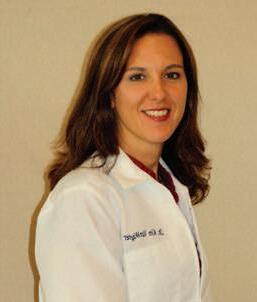
where warmer foods promote circulation, improve organ functions, and stimulate and strengthen. Balance is the key. Excesses will lead to problems. Foods with high water content tend be cooling. Longer and slower cooking methods, such as roasting and stewing, produce more warming effects than quicker cooking methods.
Food therapy can also be based off sour, bitter, sweet, pungent, salty, and bland tastes. Sour foods (such as plum, lemon, and vinegar) stimulate contraction and absorption, act as an astringent, and benefit digestion (used for excessive sweating, chronic diarrhea, and urinary leakage). Bitter foods (such as apricot kernels, bitter melon, and rhubarb) draw out dampness and heat, improve appetite, and
stimulate digestion. Sweet foods (yams, corn, and rice) harmonize all other foods. They can be used for general weakness and deficiencies and help relax and relieve pain. Pungent foods disperse stagnation and promote circulation, energy, and blood. These can be used for tumors and edema (includes ginger, garlic, and mint). Salty foods moisten and soften things and improve circulation (includes seaweed and sea cucumber; used for lumps and constipation). Bland foods (such as pearl barley) would act as a diuretic and used for edema.
Check with your vet to ensure there are no contraindications for your pet. Rules of food therapy include diversification (provide variety), moderation, 2 meals a day for dogs, and eat until ¾ full. Providing nutrient variability is a must to prevent further issues.






Ingredients
2 peaches, halved
1/2 tsp ground ancho chile pepper (optional)
4 slices sourdough bread
3 oz sliced sharp white Cheddar cheese
1 large poblano pepper, roasted and cut into strips
4 slices crisp-cooked bacon
2 Tbs butter, softened
Directions

Step 1: Sprinkle cut sides of peach halves with ground chile (if using). Using a potato masher, a flat-bottom heavy skillet, or the flat side of a meat mallet, gently smash peach halves to 1/2-inch thickness. Top 2 bread slices with Cheddar cheese. Layer 2 peach halves, half of the poblano strips, and 2 slices bacon on top of the cheese. Top with remaining bread slices. Butter both sides of each sandwich.
Step 2: Heat a skillet over medium heat. Add sandwiches and cook, turning halfway through, until bread is toasted and cheese melts, 4 to 6 minutes.
How to Pick the Perfect Peach:
• Look for firm peaches with a pleasant aroma.
• Pick full-colored peaches.
• Bigger can be better when it comes to peaches!
• Choose tree-ripened fruits.

• Drilling personnel (floor hands, derrick hands, drillers, supervisors)


• Service personnel (floor hands, pump rig operators, supervisors)
• Machinists (manual)
• Pump mechanics/millwrights
• Mechanics (diesel and heavy equipment experience required)
• Other mechanically-inclined, skilled tradesmen
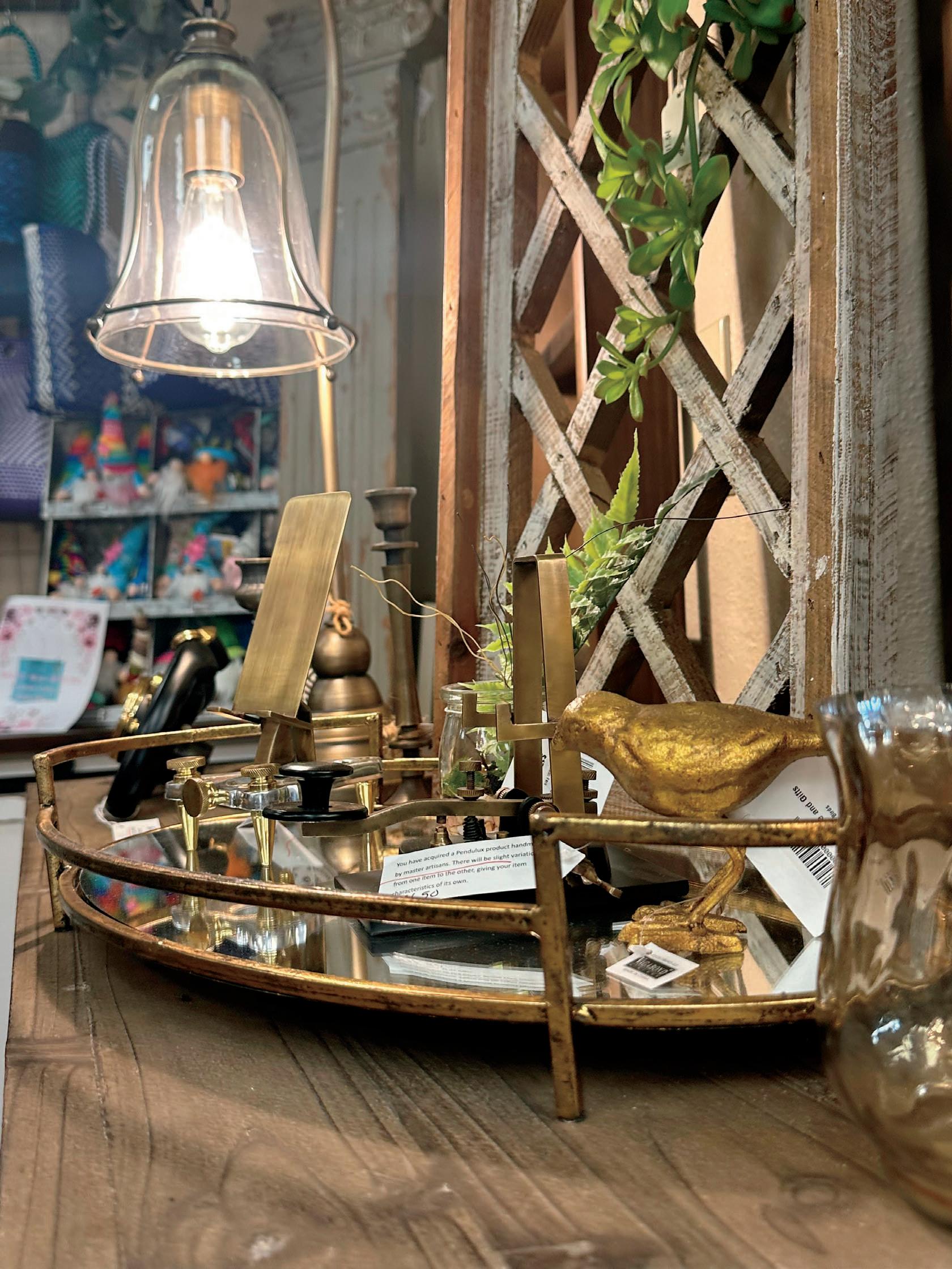
• Other licensed, technical and professional positions



A woman in labor suddenly shouted, “Shouldn’t! Wouldn’t! Couldn’t! Didn’t! Can’t!”
“Don’t worry,” said the doc. “Those are just contractions.”
A bear walks into a bar and says, “Give me a whiskey and … cola.”
“Why the big pause?” asks the bartender. The bear shrugged. “I’m not sure; I was born with them.”
Did you hear about the actor who fell through the floorboards?
He was just going through a stage.
Did you hear about the claustrophobic astronaut?
He just needed a little space.
Why don’t scientists trust atoms? Because they make up everything.
Where are average things manufactured?
The satisfactory.
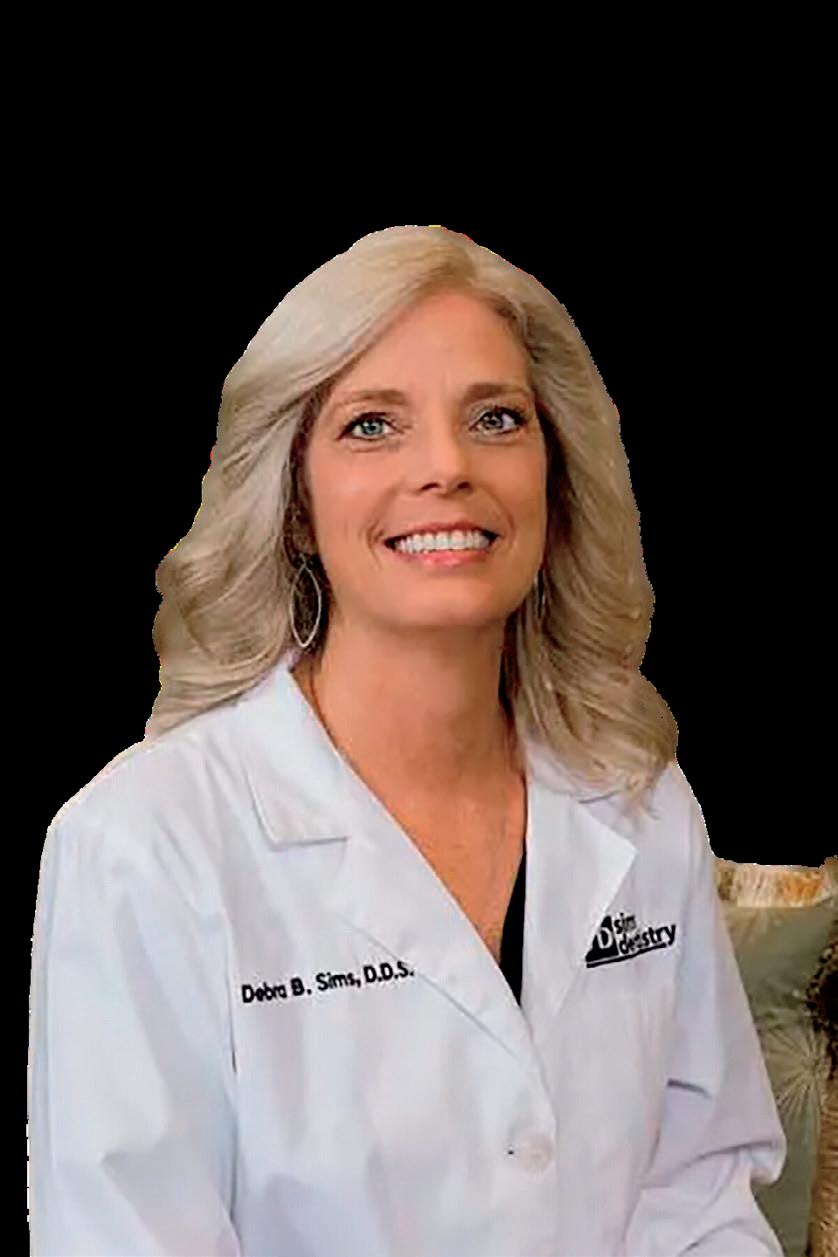

With so many fun things to do and places to see, summer gardening needs to be relaxed, carefree and enjoyable. To get to “carefree,” here are a few tips to keep your gardening chore list on the lighter side.
Hi-Yield Turf & Ornamental Weed & Grass

Stopper is a must. This granular preemergent will kill all seeds in the soil to a 5” depth, so be careful to only apply to sod or garden beds where reseeding annuals are not an issue. Apply after cleaning the bed, and you will notice NO new seed germination for 3045 days. For weeds that are above ground, use Fertilome Weed Free Zone. This is a liquid “selective” herbicide and will not affect established St. Augustine sod. Read the label; many plants are tolerant of the herbicide and can be over-sprayed. Ensure the sprinkler system is off and no rainfall for 48 hours to give the herbicide time to absorb and to obtain maximum “kill” rate.
Headed out of town for a 7-10 day vacation?

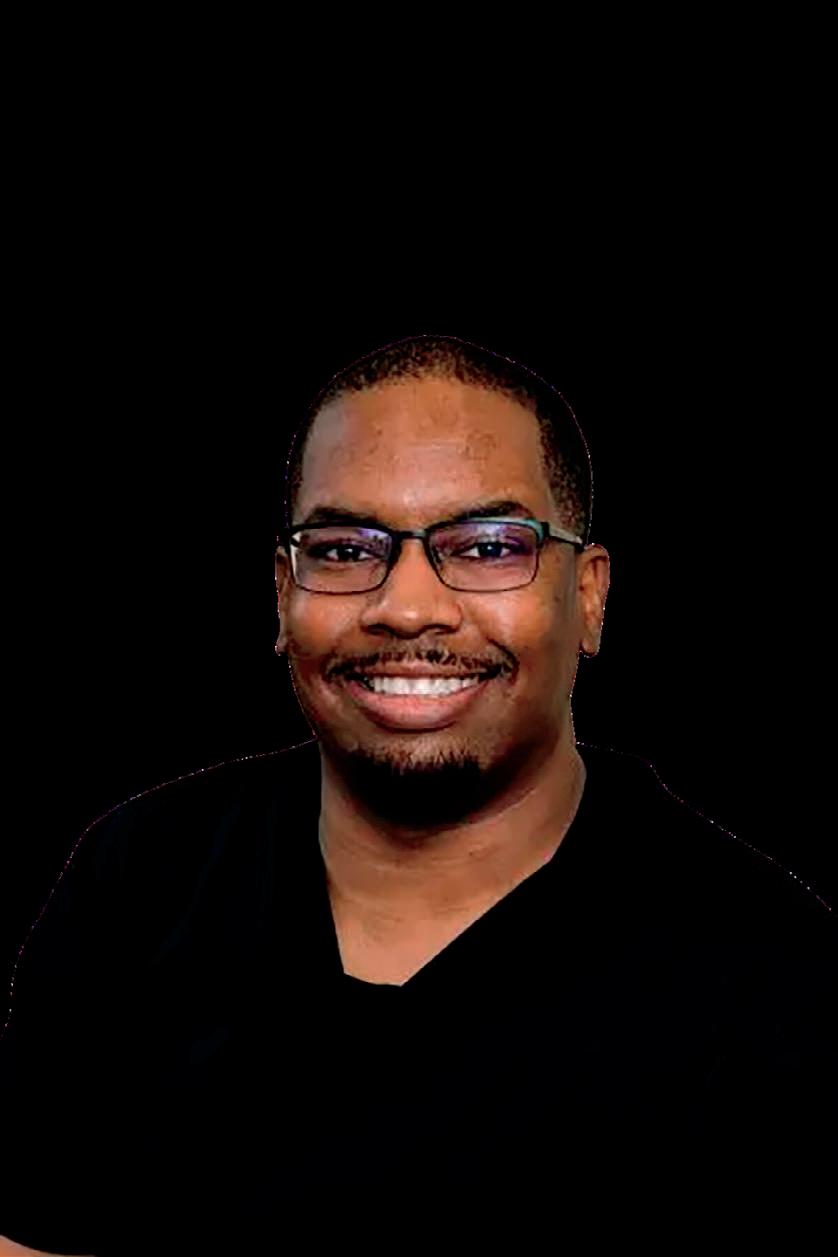
Place pot plants in a heavily shaded area in a round, plastic kiddie pool with 1” of water--or place in a heavily shaded area (even if sun lovers) where the sprinkler system will hit 4x a week. Ensure your sprinkler system is in
power goes out).
Love summer color, but not so great at remembering to water several times a week?
Try purslane, portulaca, or ice plant. These hardy, sun loving, blooming annuals make excellent hanging baskets and pot plants (also great companion color for rock beds areas with a xeriscape design or limited water). If deer are a problem, consider vinca (periwinkle), lantana, or plumbago.


It is time to move petunia, geraniums, and calibrochoa baskets/pot plants into areas with morning sun and no direct sunlight after 12:30 pm. Some of these plants will need to be pruned back to the rim of the basket or pot (due to becoming leggy). Fertilize with Osmocote 14-14-14 for a slow-release
formula that will last till August.
Keep a keen eye out for chinch bug in the lawn and spider mites on tropicals. This is definitely their favorite time of year. Both can be treated with a systemic granular or liquid organic. Fertilome Triple Action Plus is an excellent organic insecticide, miticide, and disease control that can be used up until the day of harvest. It can also be applied bimonthly as a preventative.
Keep tropicals fertilized monthly, and remember to only use hibiscus food on hibiscus. These beauties can be killed with high phosphorous fertilizer. Phosphorous content needs to be 5% or lower (save the Super Bloom for your blooming annuals).
Plant pumpkin seeds now for a Halloween harvest. Kids love watching them grow!
My friends: Jim, you’ll be 42 years old when you get out of law school.
Me: With any luck, I’ll be 42 anyhow, so I may as well be a lawyer.

Do I need a will?
Can I use a fill-in-the-blank will from the internet?
What’s probate? How long does it take?
Experience and wisdom have led attorney James M. Bright to focus his law practice on answering these and many more questions about wills and probate.
“The time when a family has suffered the loss of a loved one is not the time to suffer a financial loss also. I charge flat fees for what I do because I want people to ask questions. I used to charge hourly fees, but when I did that, people wouldn’t call and ask questions because they were afraid they were going to be charged an additional fee. We will perform all the legal duties involved in having a will admitted to Texas probate and will do so on a flat fee basis so clients do not experience further surprise or unintended expense. “
Nancy Sellstrom, his secretary for 40 years, said, “Clients who have lost a loved one are at a point in their life when they are overwhelmed anyway, so we try to make it as simple as possible for them.”
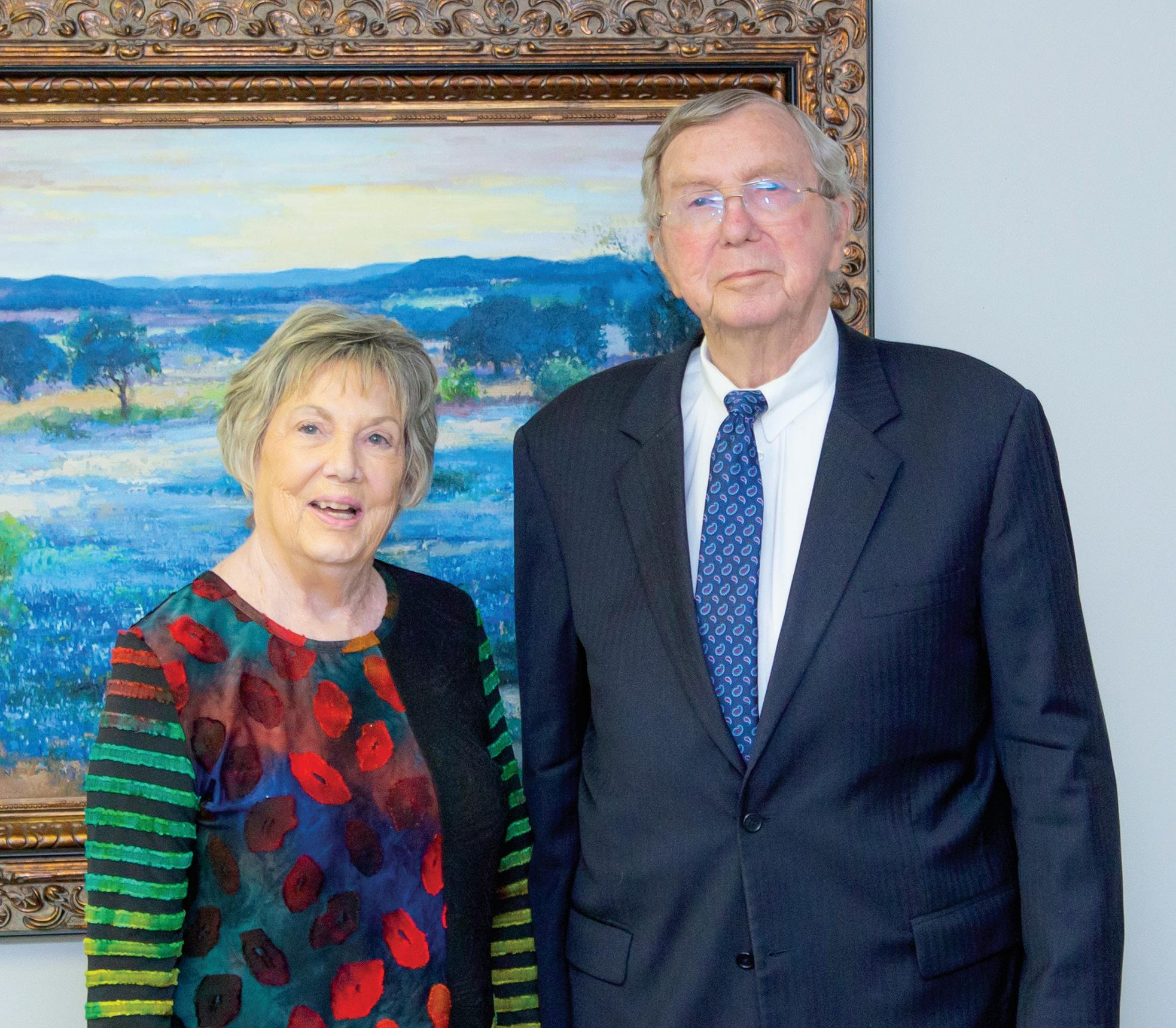
James sees clients by appointment in his office at 208 McCown Street, Suite 114 in Montgomery. He no longer has an office in Houston, but he has entered into an “of counsel” agreement with a Houston attorney so that he can still care for his current and future clients in Houston.
His website, houstontxprobate.com, offers a wealth of free information from everything about basic types of wills (which may be used to pass property at death) to how to make sure your pet is cared for after your death. Information about making wills and probating wills is also on the website.
“He loves educating people,” Nancy said.

The atmosphere in James’s office in Montgomery’s historic district is relaxed. He said, “The majority of our clients come from word-of-mouth advertising. A lot of our probate cases come from the wills we’ve done, and they were happy with our service. People tell their neighbors, and they come in.”

Clients and friends also stop by to give a greeting and to pet Sonny, the white lab who comes to the office with James. He
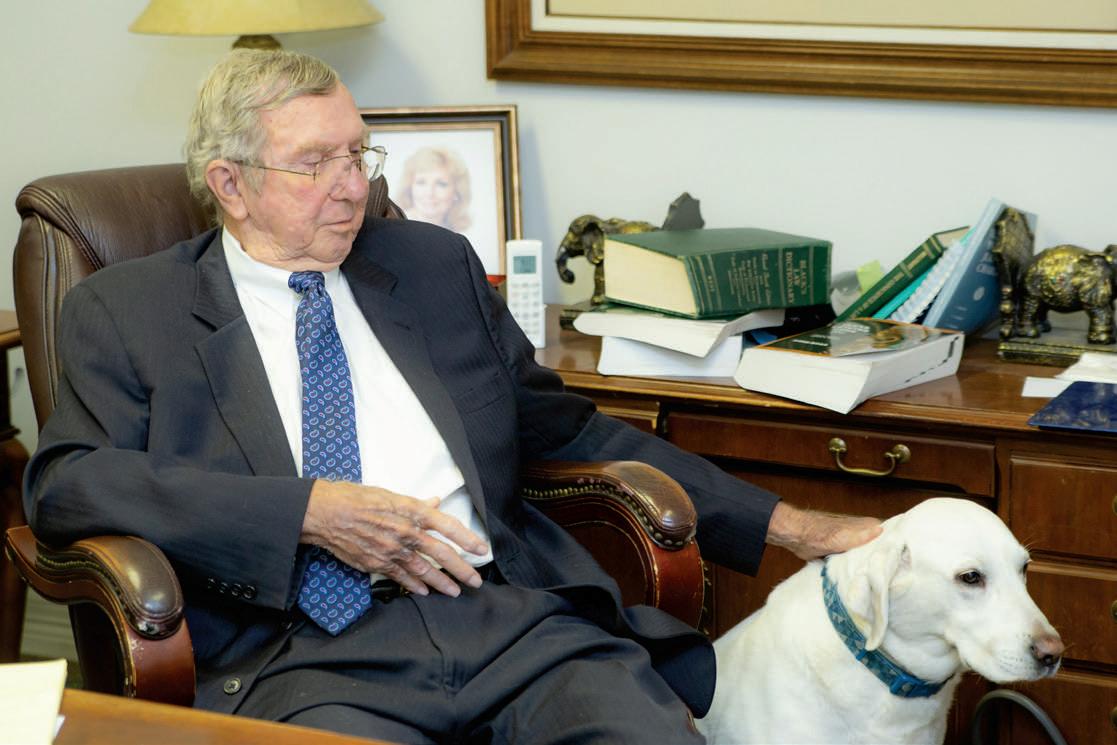
had owned a couple of rescue labs over the past years and wanted another, but he had trouble finding a lab rescue at that time. He’d given up.
“The day I found Sonny through a rescue organization, I’d already made the reservation to see some puppies in Magnolia, so I went ahead. I hate to make a reservation and not show up. Well, you know what happened; when we saw the puppies, we fell in love with one. Since the first was already named Sonny, we named her Cher. She’s about seven years old now; Sonny’s about nine or ten.”
Two color photos of his wife Carol adorn his office. They have been married for 63 years.
A Texas native, James Bright was born in Waco and went to grade school there before moving to Fort Worth for high school. He served in the U.S. Marine Corps from 196164. After discharge, “I designed and sold manual accounting systems when I was

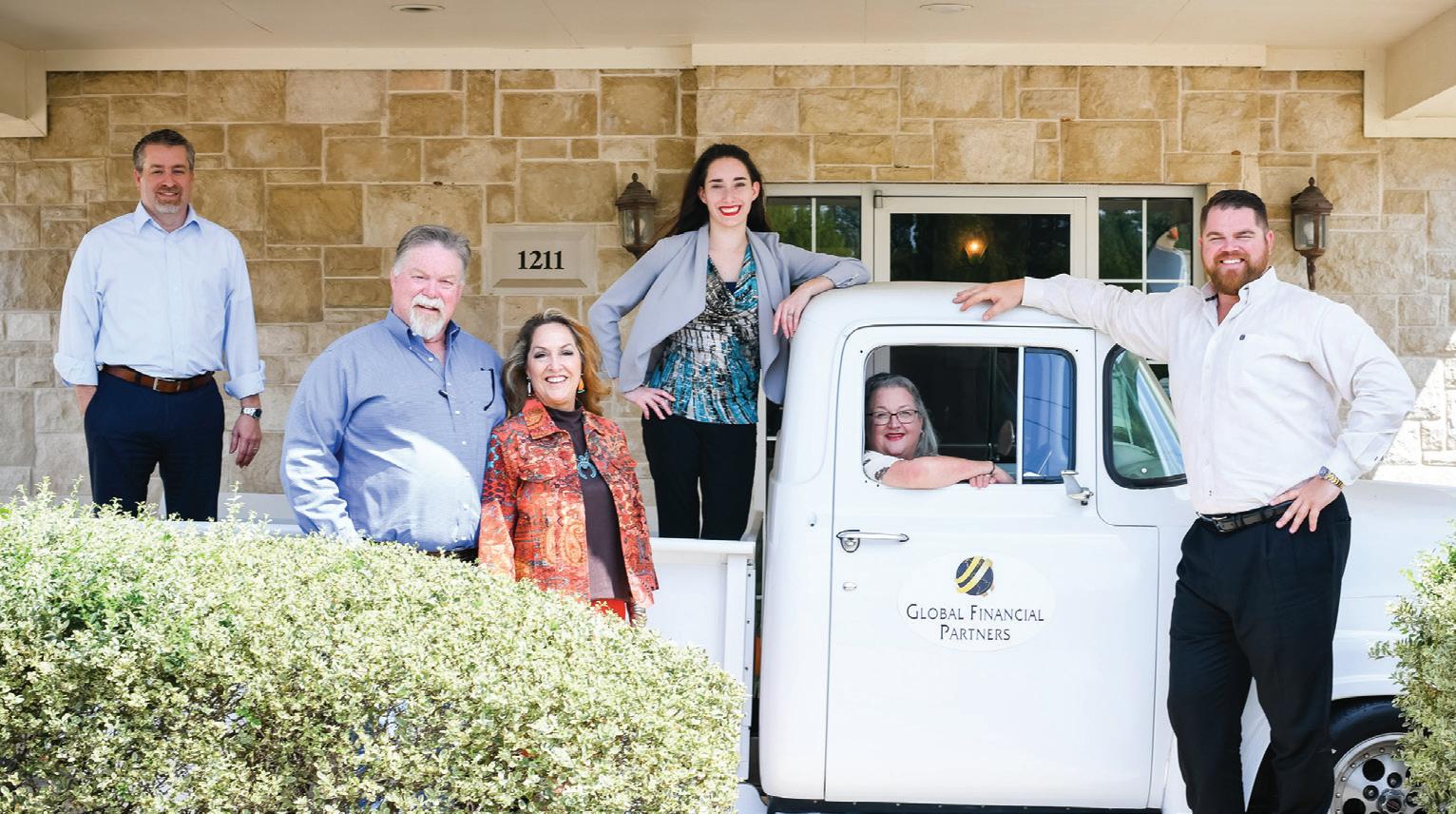
in Kansas City, Missouri. This was before computer programs that make it a lot easier.”
After he finished his Bachelor of Arts degree in Kansas City, James returned to Texas in 1975 and attended Law school at South Texas College of Law at night. “I’d always wanted to go to law school. Fortunately, I have a wife who was very supportive. I think we can do anything together.”

My friends said “Jim, You’ll be 42 years old when you get out of law school.” I said, “With any luck, I’ll be 42 anyhow, so I may as well be a lawyer.” His wife Carol also attended college and later got her degree in computer science.
When asked about the changes since James first began practicing law, both he and Nancy agree that technology has played a major part. Nancy said, “The biggest change on my side is the technology. We couldn’t do the job we do without the computers. At first, we had a typewriter and carbon paper. Then we got a typewriter that had five pages of memory. And then there was the computer, which I converted to kicking and screaming. Now I can’t imagine trying to do wills without a computer.”
Both agree the change to having the hearings via Zoom instead of in person has saved time and money. Prior to Covid, everyone (including the executor), had to appear in person at the courthouse at the same time. Many times, the executor who had to appear in court lived out of state. “That was a hardship for everyone to assemble for a hearing that took five minutes,” Bright said. Not requiring the witnesses and attorneys to be present in the courthouse is a welcome change for everyone, because it saves everyone’s time and money.
James has no plans to retire because, “I like what I do. Law practice is interesting. Sometimes you think you’ve seen or heard it all, and then something pops up. It feels like you’re performing a service. Clients seem to appreciate that.”
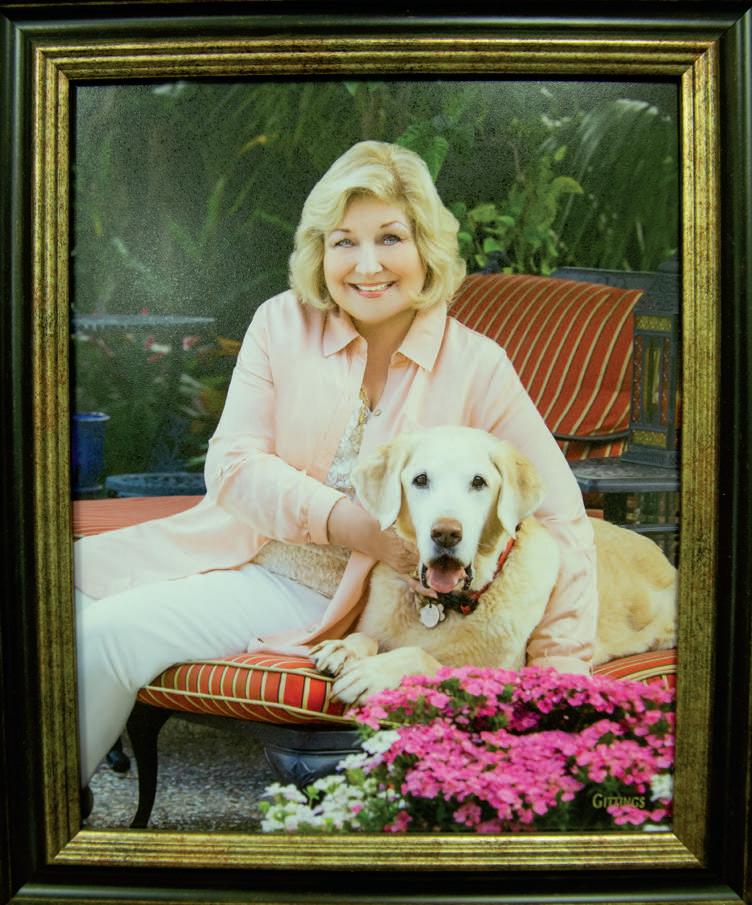

“What is most important in my life is my marriage. I get up and thank God every morning for my life.” James and his wife Carol appreciate simple things in life. A relative gave them a bird feeder a couple of months ago, and they enjoy watching the birds it attracts. Watching the acrobatics of the squirrel who routinely steals the bird food provides amusement for the couple. Become informed. Find answers to many of your questions about wills and probate on James Bright’s informative website, houstontxprobate.com. It even addresses scams directed toward senior citizens. James invites you to call his office at (936) 449-4455 or (281) 586-8277.

see answers on page 23

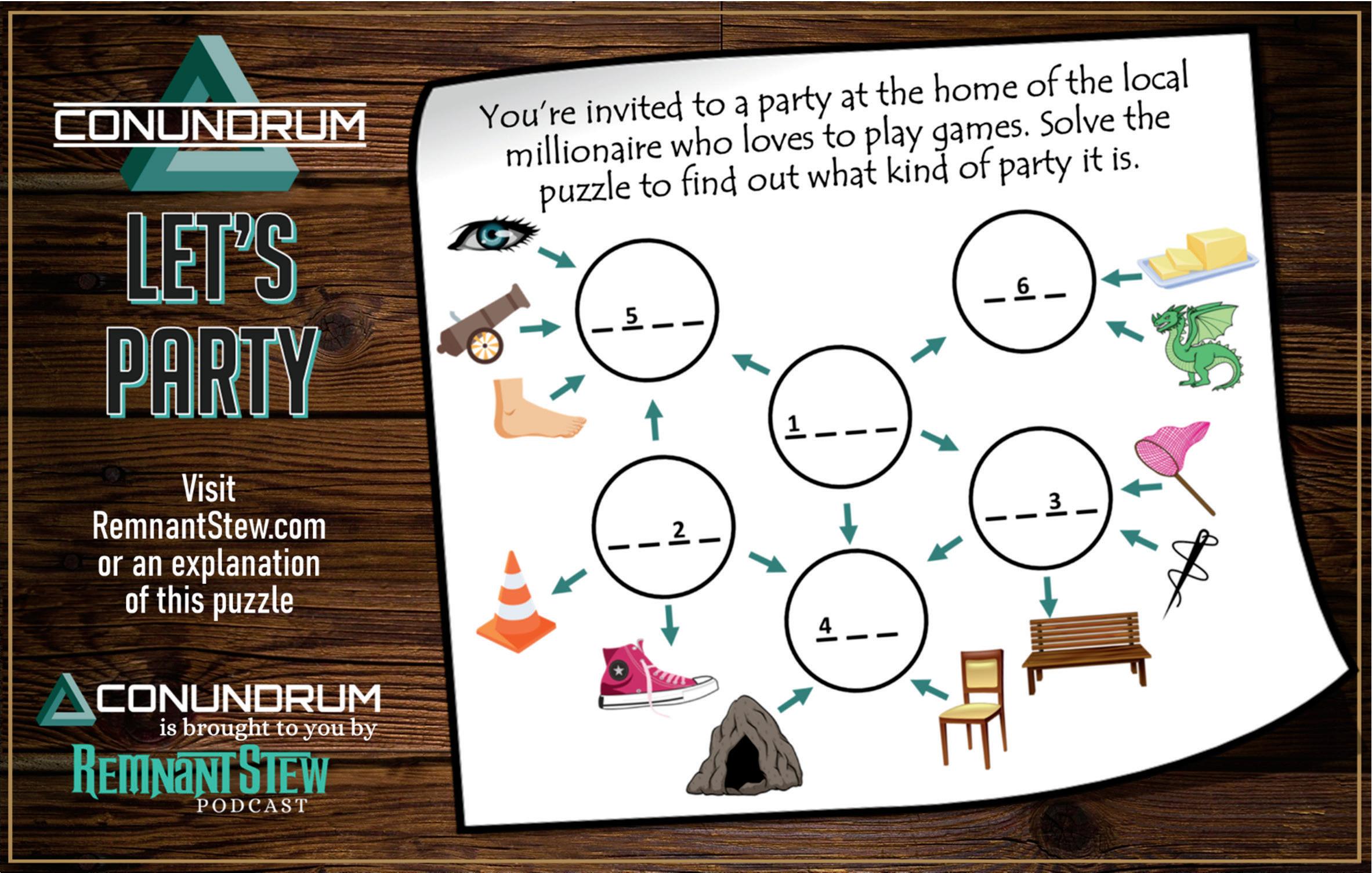











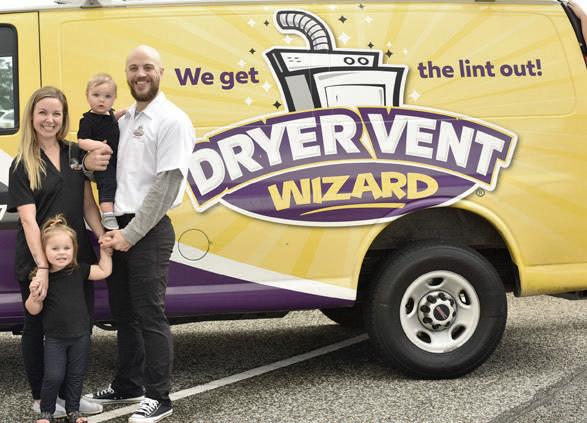







 by Wes Altom
by Wes Altom
As a child, I vividly remember mom taking us to the shoe store when we outgrew our current pair. There would always be a measurement with a store employee on that metal shoe sizer, followed by selecting a pair, trying them on, “Raise your toe so I can see where it is,” then “Yes, I WOULD like to wear them out of the store.” But, for a child buying tennis shoes, the most important item on the checklist was, “Stand back so I can see how fast they are,” followed by a blazing run to the end of the aisle and back. Somehow, there seemed to be “magic” in those new shoes (or maybe it was a magical excuse to be able to run indoors without getting in trouble.)
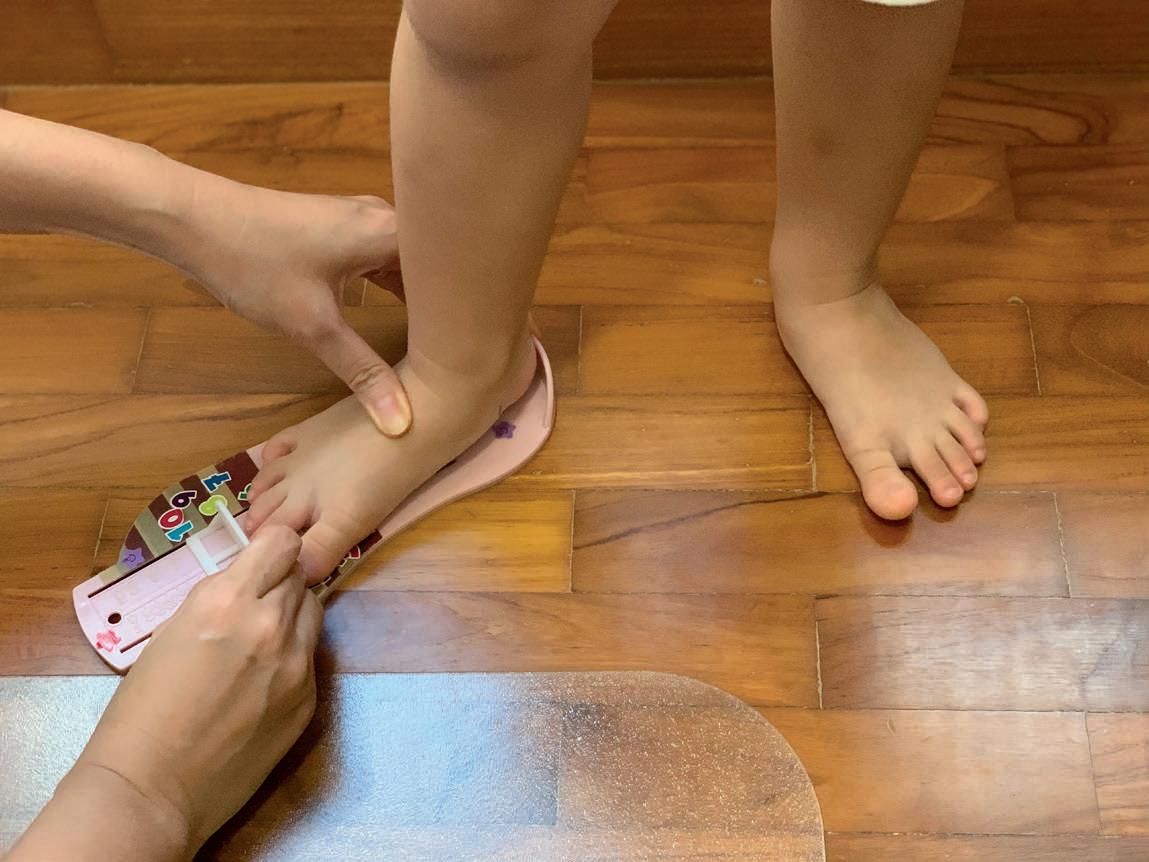
Now that I’m older, I believe more than ever in the magic of a new pair of shoes. I have learned over time that the key to learning so many important life lessons—how to have compassion, how to be a servant, how to forgive, how to have humility…how to apply the Golden Rule in general—rests in our ability to put ourselves in someone else’s shoes (with Dictionary assist: To imagine oneself in the situation or circumstances of another person, so as to understand or empathize with their perspective, opinion, or point of view.)
I think one could argue, in fact, that we are never more Christ-like than when we do so. After all, he left heaven to walk a few thousand miles (and the road to Calvary) in our shoes…
Here is one thing that would complete my joy—come together as one in mind and spirit and purpose, sharing in the same love. Don’t let selfishness and prideful agendas take over. Embrace true humility, and lift your heads to extend love to others. Get beyond yourselves and protecting your own interests; be sincere, and secure your neighbors’ interests first. Philippians 2:2-4

I was extremely impressed with the entire experience I had with Cameron Optical on 12.06.2022. At 75 years, I have experienced numerous eye care offices, not one even came close to the experience at Cameron Optical. The entire staff I dealt with were superb individuals. Dr. Bonnie Cameron gave me the most comprehensive explanation of my overall eye health ever!
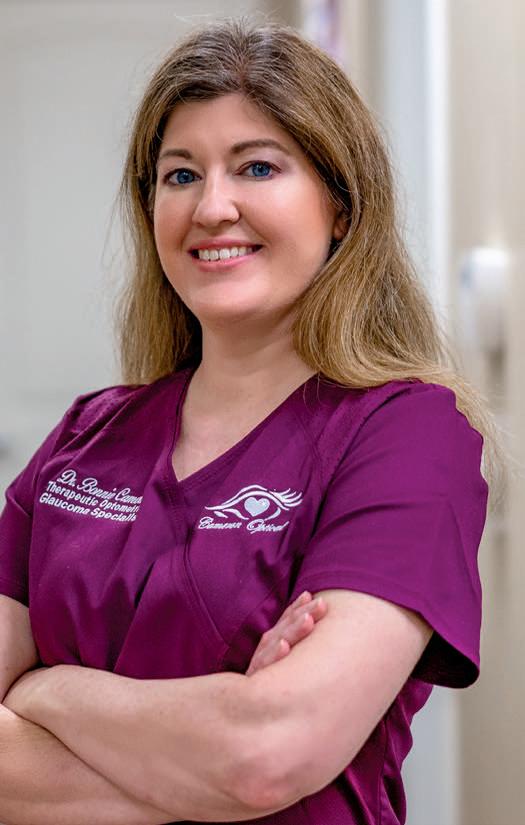
 ~ Norman H.
~ Norman H.
I am shocked and amazed! I typically don’t enjoy eye exams or appointments but EVERYONE at this office made it easy AND enjoyable! I actually had fun!! They were thorough and professional and absolutely lovely! Held my hand when I needed it and were completely relateable. It almost makes me want to go again!
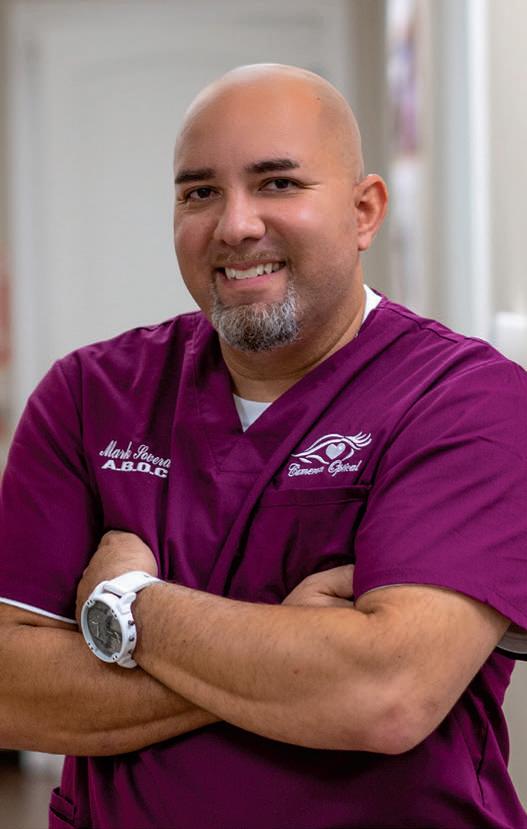
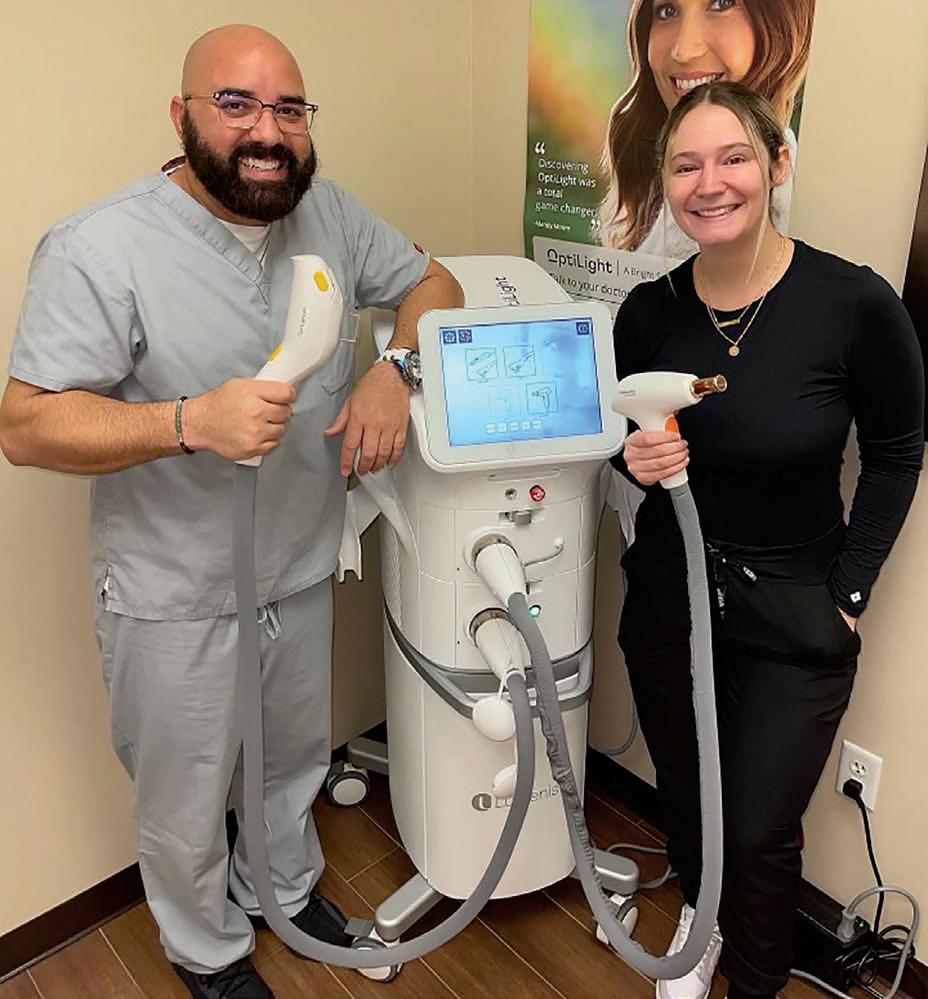


 ~ Paula P.
~ Paula P.
